Six Flying Dragons: Episode 3
by HeadsNo2
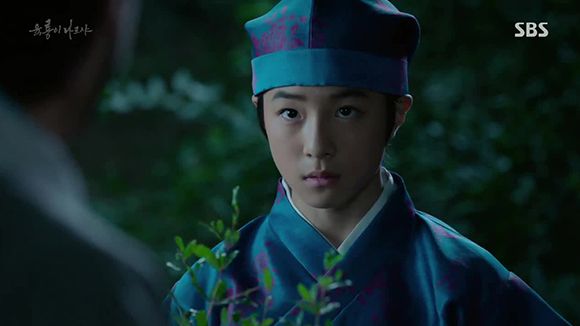
There’s a scandal at Sungkyunkwan, but instead of dealing with the cute antics of a cross-dressing girl, Six Flying Dragons had to make it all about psychological torture, suicide, and the depths of human depravity—or as they say in sageuk, it’s Tuesday. Young Lee Bang-won has to face some harsh truths this hour when it comes down to the wire, and while he may not like what he finds, never let it be said that he’s not the kind of future king who can’t turn lemons into lemonade, however violently he may choose to do so.
SONG OF THE DAY
Thornapple – “암실 (Dark Room)” [ Download ]
Audio clip: Adobe Flash Player (version 9 or above) is required to play this audio clip. Download the latest version here. You also need to have JavaScript enabled in your browser.
EPISODE 3 RECAP
We cut straight from Jung Do-jeon’s triumphant scene leading the people in a rallying cry to him bloodied and battered in a torture chamber, at the hands of none other than Gil Tae-mi.
The best swordsman in Goryeo demands to know who’s the real culprit of the stunt he just staged, unwilling to believe that Jung Do-jeon did it entirely on his own. He’s also over the “Every citizen is the culprit!” kind of talk Jung’s been giving him—he wants real answers, and he wants them now.
It’s morbidly funny how Gil Tae-mi gives the go-ahead for the torturers to help “convince” Jung Do-jeon to talk, but then reels in mock horror when they pull out the branding iron. “That’s positively barbaric! Put that away!” he all but shrieks, before pulling out his favored method: A domoji, or piece of wet paper used to simulate suffocation.
The domoji is held over Jung Do-jeon’s face as Gil Tae-mi gleefully adds more layers, waiting until Jung is actually about to suffocate before pulling them off. “How was it? How was it? How was it?!” Gil Tae-mi asks excitedly, curious to know what dying feels like. This is all fun to him, isn’t it?
While Boon-yi and Ddang-sae wait for Jung Do-jeon to emerge to ask him how he knew their mother’s song, little Bang-won stands up tall as he tells his father and eldest brother LEE BANG-WOO (Lee Seung-hyo) that he won’t be returning to Hamju with them.
As for the why, Bang-won flashes back to the direct aftermath of Jung Do-jeon’s display, where he’d approached one of the scholars who’d been beaten by the guards. He’d professed that he wanted to become like Jung Do-jeon and asked how he could join their reindeer games, to which the scholar told him to go to Sungkyunkwan, the highest institute for scholarly learning in Goryeo.
Meanwhile, the scholars and ministers on Jung Do-jeon’s side all cheer for what he’s accomplished in the fight against Yuan, though they have to devise a way to free him from prison.
First things first though, since they’ve gotten their hands on a falsified letter that Lee In-gyeom was attempting to send to the king, which has the prime minister and partner-in-crime BAEK YOON fretting. They’ll risk losing vital support from the Haedonggabjok (a group of noble families dating back to the Silla Dynasty) to the sadaebu group of scholar-nobles, which means losing to Jung Do-jeon.
Gil Tae-mi enters with a pilfered appeal the sadaebu were attempting to send to the king, which mentions Lee In-gyeom by name and blames him for everything that’s gone wrong. Lee In-gyeom shakes as he reads it, just as Baek Yoon strongly suggests that they exile Jung Do-jeon, the source of their problems, and strike the sadaebu down.
The only impediment to that plan is General CHOI YOUNG (Jeon Gook-hwan), who happens to enter their chambers right at that moment.
Likewise, Jung Do-jeon is counting on the general to help their cause, since he’s still imprisoned and doesn’t share in Jung Mong-joo’s sense of victory over sending the Yuan envoy back after their demonstration, or in sending an appeal to the king (which neither of them know has been purloined).
And as if on cue, General Choi tears Lee In-gyeom a new one over failing to do his job in protecting Goryeo, and more embarrassingly, by arranging a farce of a meeting with fake Yuan envoys just to catch one loan scholar. His first thought is of stabilizing the country, and in order to do that, he tells Lee In-gyeom to arrest all the troublemakers in the sadaebu.
Lee In-gyeom has to hide his smile, since he now has official permission to do what he’s been wanting to do anyway. General Choi won’t be the help Jung Do-jeon wanted after all, since he also advises that every scholar or minister involved in the appeal to the king be arrested while Jung Do-jeon be sent off to exile quietly to avoid a revolt by his supporters.
The organized assault on all the involved scholars, even including Jung Mong-joo, happens on the day Bang-won visits the capital already dressed as the Sungkyunkwan scholar he now aspires to be. But outside the campus, he witnesses both scholars and ministers alike being arrested.
As Minister Hong is taken away, he addresses the young scholars who on virtue in Confucianism—Confucius saw virtue, or ren, like a seed within every person. Since a seed is not the tree or fruit it can eventually become, it must be nurtured and cultivated.
It’s the same with virtue, Minister Hong tells his students, as he reminds them to keep fighting the good fight and to never give up in the face of oppression. Bang-won knows he’s in the right place as he witnesses these events unfold, obviously siding with the idealism on display with Minister Hong and the scholars.
Like General Choi cautioned, Jung Do-jeon is quietly escorted out of the capital by a small caravan. But the guards are unaware they’re being followed by little Boon-yi and Ddang-sae until she runs up to one of them and cries that she and her brother are Jung’s children, and want to speak to their beloved father one last time.
The news that he has two young children comes at a surprise to Jung Do-jeon, but one of the guards is moved enough by Boon-yi’s emotional display to let them through. Even more surprising to him is that all Ddang-sae wants to know is what song he sang at Jangpyeong Gate.
Jung Do-jeon finds it hard to believe that their mother knew the same song, since the late King Gongmin came up with it, and the only other person who would know it was his wife, Princess Noguk. Their mother would have had to have worked in the palace.
Ddang-sae doesn’t think she did, but when she mentions one of the names she was called by, Jung Do-jeon recognizes it instantly—he knew her as one of Princess Noguk’s maids. But she died eighteen years ago.
As his caravan leaves the two shell-shocked children behind, Jung Do-jeon knows that it doesn’t make sense for a woman dead eighteen years to have children as young as they are, nor can he shake the resemblance Boon-yi has to the maid he knew.
Similarly, the two siblings have to believe that he couldn’t have been talking about their mother, despite the similarities. Neither of them want to believe that she’s dead, but Ddang-sae wants to know who their mother really was—and the only place he can hope to find out about her is here.
Boon-yi isn’t giving into the idea that their mother could be dead because of the timeline discrepancies, but she wants to go back home in case their mother has gone there looking for them. Ddang-sae tells her to go without him for now, since he wants to investigate here a little longer. Boon-yi cries, wishing he would just come with her. But his mind is made up.
Now a Sungkyunkwan scholar officially (and insanely quickly), Bang-won gifts his beggar friends with food and asks about Boon-yi, aka the girl with the raging temper. When told she left two hours ago, he tries to run after her, only he’s too far behind.
He thinks of how she cried about her needing someone to rely on in the capital, and sighs that he was going to tell her that she could actually rely on him now. As he digs into the dirt to plant a tree, he says in voiceover that he’d also planned to plant this symbolic Lee In-gyeom tree with her.
The point of planting it was to eventually tear the thing down with her when Lee In-gyeom was defeated, but now he vows to do it himself. “Lee In-gyeom, I will make sure to break you with my own hands.”
How much time has passed isn’t clear, but we catch up to Bang-won doing well with his Sungkyunkwan peers, even making friends with an older and bright-eyed hyung named HEO KANG (Lee Ji-hoon).
Their talk about the philosophy of governing when it comes to profitability turns inevitably to Gil Tae-mi, who’s been trying to steal land from farmers like Kang’s father. Unrelated: Gil Tae-mi is being shadowed by a mysterious white-haired man.
However, their meeting for scholarly discussion in a temple outside the grounds of Sungkyunkwan is forbidden, as said by rival scholar GIL YOO, who’s currently enjoying a party at the local gibang.
Scholar Yoo is responsible for scholars up and leaving Sungkyunkwan of their own accord, since he’s against Scholar Kang’s group of scholars, who meet in secret to keep to the old ways of teachers like Minister Hong—and since those teachers have been arrested and the teachings of Mencius have been banned, what they’re doing is technically against the rules.
Since Gil Tae-mi wants Scholar Kang’s father out of the picture, and since Scholar Yoo wants Kang out anyway, the two team up to get rid of both father and son. Considering that they’re both father and son. Weird, right? Gil Tae-mi’s eyeshadow would’ve suggested otherwise.
Yoo’s gang of scholars declare war on the loyalist scholars, and targets one in particular as he tries to bury a book of Mencius’ teachings, now banned.
But for his refusal to burn the book, the loyalist scholar is forcibly held down while his forehead is tattooed. The next morning, Scholar Kang, Bang-won, and the other loyalists see him hanging from the ceiling—and when they cut him down, the note that Bang-won finds in the dead man’s robes is immediately seized by Scholar Yoo.
The dead loyalist was Scholar Kang’s best friend (which is why he was targeted), and it’s only when Bang-won points out the blood on his friend’s forehead that Kang pulls back his gat to reveal the word samunnanjeok, meaning “someone who’s against neo-Confucianism and Confucian ideology.”
So with a bullseye on his forehead that basically means “traitor,” it’s easy to see why a Sungkyunkwan scholar would be driven to kill himself. Scholar Kang is absolutely devastated at his friend’s mutilation, while Scholar Yoo’s gang plots to hide his suicide note bearing their names.
One of the scholars who left the loyalist group, KANG CHAN-SUNG (Seo Joon-young, in what’s unfortunately just a cameo), returns to the campus to see his dead comrade. Only later does he reveal to Scholar Kang and Bang-won that he was subjected to the same treatment as their late friend—but in order to avoid the tattoo, he burned the book they put in front of him.
Chan-sung regrets his decision now, wishing that he would have died instead. But Bang-won intervenes with tears in his eyes to tell him that his thinking is flawed: even if he were to be branded, he should have lived on and stayed at Sungkyunkwan no matter what. It’s all Scholar Yoo’s fault.
Bang-won fumes about the injustice of it all, and the true evil of Scholar Yoo and his ilk in forcing people into an unholy bargain where there are no winners, only the choice to live in shame forever. He’s so adamant about holding Scholar Yoo responsible that Scholar Kang has to take him by the shoulders and tell him to calm down.
Just then, word spreads throughout the campus that the exiled Minister Hong has been allowed to return, and all the scholars rush to greet their old teacher. Bang-won introduces himself by bowing with his forehead to the ground, having nothing but respect and admiration for a man he’s only just getting to formally meet.
After being told of what Scholar Yoo’s gang has been doing, Minister Hong urges the loyalist scholars to bring their evil deeds to light. They’ll use the cover of night to hang postings of Yoo’s wrongdoings for all Sungkyunkwan students to see, but Bang-won is caught alone by the contingent of scholars with a flair for flames and tattoos.
Bang-won is safe with his loyal bodyguard the next morning, but he’s also very, very quiet. Was someone up too late burning books?
A flashback to the night before shows him faced with that dreadful decision, and in the present, he struggles with what he’d said about Scholar Yoo’s gang forcing people to live in shame no matter what their choice was. Addressing Young-kyu, Bang-won asks, “How do you think it feels… when a man lives in shame forever?”
Remembering how his father bowed to Lee In-gyeom and how he never forgave him for it, Bang-won leaves abruptly. Something about him has definitely changed.
The posters have made it to the Sungkyunkwan administrators, headed by none other than Baek Yoon himself. Though Gil Tae-mi argues that his son would never do the things he’s accused of, Baek Yoon won’t be swayed from ordering an investigation—and he wants Minister Hong, someone the students trust, to lead it.
But Gil Tae-mi and Baek Yoon’s bodyguard have rubbed each other the wrong way, so when the bodyguard questions whether Gil is truly the best swordsman in Goryeo, he’s happy to answer. Yes, he may look unassuming and people don’t see him as best swordsman material—but all those people who doubted him are dead now.
The bodyguard still decides to try his luck in a fight against him, but it only takes a few seconds for Gil Tae-mi to outmaneuver him enough to hold a knife against his neck, leaving it at that.
Scholar Kang doesn’t hide that he’s responsible for the posters when formally questioned by Minister Hong, asserting that all the allegations are true. To prove it, he calls Chan-sung forward as a witness, but he betrays them by claiming not to know what they’re talking about.
After receiving ten lashes for making false accusations, a bloody Scholar Kang drinks with Bang-won and his buddies, who all think that Chan-sung must have been bribed for his testimony.
Bang-won sees it differently—how could Chan-sung admit to burning that book in front of everyone? As to how he’s so certain, Bang-won thinks to himself, “Because I know how he feels.”
Gil Tae-mi screams like a madman after getting reamed by Lee In-gyeom for picking a fight with Baek Yoon, only to come home to an unexpected guest in the form of Minister Hong. Bang-won also returns home weak and covered in blood.
Soldiers raid Scholar Kang’s home the next day, and though his father thinks it’s Gil Tae-mi after his land again, they reveal that the tattoo-happy members of Scholar Yoo’s gang were killed last night. Brandishing a torn-off piece of Kang’s jeogori as proof that he was there at the scene (though he’s just discovered it missing), they arrest him.
Bang-won and Scholar Kang’s other buddies visit him in prison, vowing to do whatever they can to help free him—he couldn’t have murdered anyone when he was out drinking with them all night. But Bang-won… waitaminute.
In order to free his son, Scholar Kang’s father finally gives in to Gil Tae-mi when it comes to his farmland, and signs over half of it to the greedy swordsman. Gil Tae-mi celebrates by dancing with gisaeng, none of whom look half as gaudy as he does. He thanks a man whose face is hidden for coming up with the scheme.
Bang-won visits Minister Hong’s home in an attempt to speak to him that night, only to be told he’s at the gibang. Turns out that he’s the mystery man who helped Gil Tae-mi con Scholar Kang’s father out of all his land, but why? Surely there must be a bigger plan here.
There is, but not one that puts Minister Hong in a better light—he made the deal with Gil Tae-mi in order to secure him as an in-law. As for who Gil used to kill the scholars, he merely says it was a hired assassin.
Bang-won heads to the gibang to find Minister Hong, only to feel another stab of betrayal when he sees Gil Tae-mi all over his future in-law as he complains about not getting enough love from Lee In-gyeom anymore. (If it’s any help, Minister Hong is really not into all the skinship.)
On his way home, Gil Tae-mi is stopped by the white-haired man he only thought he saw earlier, asking him if he’s seen the man on the poster he produces. The elder is unassuming and kind, but Gil Tae-mi is not, and tries to shove him out of his way.
When he does, the elder springs into action, and his quick moves leave Gil Tae-mi stunned and just a little bit impressed. They draw swords against each other, finding that they’re rather evenly matched. But the elder no longer believes Gil Tae-mi could be the best swordsman in Goryeo after their exchange, and says as much in Chinese before disappearing into the night.
Bang-won confronts Minister Hong when he returns home, and to his surprise, his teacher doesn’t deny that he was with Gil Tae-mi. When Bang-won asks how he could ally with such an evil man, Minister Hong gives him the philosophical runaround: “What is evil, and what is good?”
But Bang-won reminds him of the speech he gave as he was being arrested, the one about nurturing virtue, again asking him how he could fly in the face of his own teachings. Minister Hong remembers what happened after the arrest, however, and how he folded like paper under torture.
Now that he knows himself better, and knows how he reacts in trying times, he’s much changed from the day he left. His questions on the nature of good and evil aren’t enough for Bang-won, who declares in a voice much bigger than his size that at least he’s just, even if he isn’t good. Minister Hong laughs at that: “What’s the difference between goodness and justice?”
As Scholar Kang is released into his father’s care, Minister Hong finds out that his assassin didn’t carry out the scholar murders after all, because his targets were already dead.
Cut to Bang-won, who absentmindedly tends to his Lee Tree as he thinks about Minister Hong. Young-kyu can’t get through to him, nor can he find out what caused Bang-won to come home exhausted and covered in blood.
Bang-won is still hung up on Minister Hong’s question about goodness and justice, but we see how he responded through a flashback: “To be good means to embrace evil and accept it. Yet justice means to never permit evil. Justice means to stamp out evil in order to be called justice.”
Minister Hong is thinking about that same moment, now realizing the deeper implications in Bang-won’s ferocity—could he have murdered the scholars? Meanwhile, Bang-won poses the same question to Young-kyu as Hong did to him: “What is good? And what is evil?”
Bang-won flashes back to his encounter with the gang of scholars, who beat him, humiliated him until he cried, and laughed mercilessly when he had no choice but to burn Mencius’ teachings in front of them. In the present, he can’t seem to hold back a satisfied smirk.
“It was not my blood,” Bang-won finally replies to Young-kyu’s question. He gives him no more than that, leaving Young-kyu to discover the three extra trees he planed—and all three have been broken.
Bang-won crosses his threshold a new man, pausing for just a moment before taking the first of what will soon be many assured steps. “This is only the beginning.”
“The Third Dragon: Lee Bang-won, Joseon’s future king Taejong.”
COMMENTS
I would’ve understood the fixation with trees in Tree With Deep Roots, which surprisingly had absolutely nothing to do with foliage, but have to admit that the tree symbolism here is a bit lost on me. It’s not like it’s too deep to be understood, and I do kind of get where they’re going with it, but there’s no context within the story to explain why Bang-won feels the need to plant a tree that he’ll then cut down if the enemy it symbolizes is destroyed. It feels rather arbitrary, though I can see where it’ll pay off in the future, when presumably Lee In-gyeom’s tree will grow bigger and harder to cut every year that Bang-won fails to defeat him.
More important than how Bang-won chooses to celebrate Arbor Day is, of course, the murders. Never in my life would I have thought I’d be so excited at the thought of a main character committing three heinous murders, and to have him do so as a child is a bold move that’s honestly pretty impressive in its darkness. With the character trajectory from last week, I would have guessed that we’d see more of the idealistic Bang-won in his younger incarnation before moving onto the more questionable stuff history knows him for, but this approach comes off much smarter and more organic (and most of all, interesting). It allows us to follow his personal journey and to understand what makes him tick, even if the thinking is technically flawed.
But what I like about Bang-won is how he’s figuring himself out, and how what happens around him really does root itself deep in his psyche before it manifests itself in his thoughts and actions. It’s enough to make you wonder whether certain aspects of Bang-won’s personality wouldn’t have come to light if just this one thing had been different, or if X or Y hadn’t have said what they did, and so on. After all, we’re seeing Bang-won in his formative years, and while he does have a strong sense of self he’s also still quite impressionable—more so than he’s likely aware of, if at all.
It probably doesn’t help that all the adults he looks up to keep failing him, especially in a kid with a rather extreme concept of how conviction works. But while that kind of liberty-or-death thinking can be chalked up to the turbulent times he’s been forced to grow up in, not everyone would kill for what they believe in. And even that might be giving him too much credit, since he was motivated by more than altruism—whether he admits it or not, he killed for revenge. The fact that they were also really bad guys who’d done some really bad things is almost secondary to that, though I wonder if Bang-won recognizes that in himself or whether he truly believes he’s the embodiment of justice.
It’s a good thing we were at least able to get that solid storyline out of just this episode, since I was beginning to worry by the midway point that we were spending too little time with every character rather than enough time on any character. Of course, that’s part of the challenge when world-building on this scale, and it’s worth noting that there’s more than just the obvious, physical thread that connects each of these stories. Yes, there were actions that tied everyone’s disparate storylines together, but what I found myself really drawn to was how the shared experience of finding one’s self under duress affected each character in their own unique way. And in that sense, Bang-won is very self-aware, in that his particularly bloody brand of soul-searching has only just begun.
RELATED POSTS
- Six Flying Dragons: Episode 2
- Six Flying Dragons: Episode 1
- The swords come out for Six Flying Dragons’ posters
- The dragons take flight
- Character teaser roll call for all Six Flying Dragons
- Four Flying Dragons down, two left to go
- Yoo Ah-in takes up the sword in Six Flying Dragons
- Shin Se-kyung reunites with Yoo Ah-in in Six Flying Dragons
- Baek Jin-hee drops Six Flying Dragons
- Six Flying Dragons confirms leads, adds Yoon Kyun-sang
Tags: Byun Yo-han, featured, Kim Myung-min, Shin Se-kyung, Six Flying Dragons, Yoo Ah-in
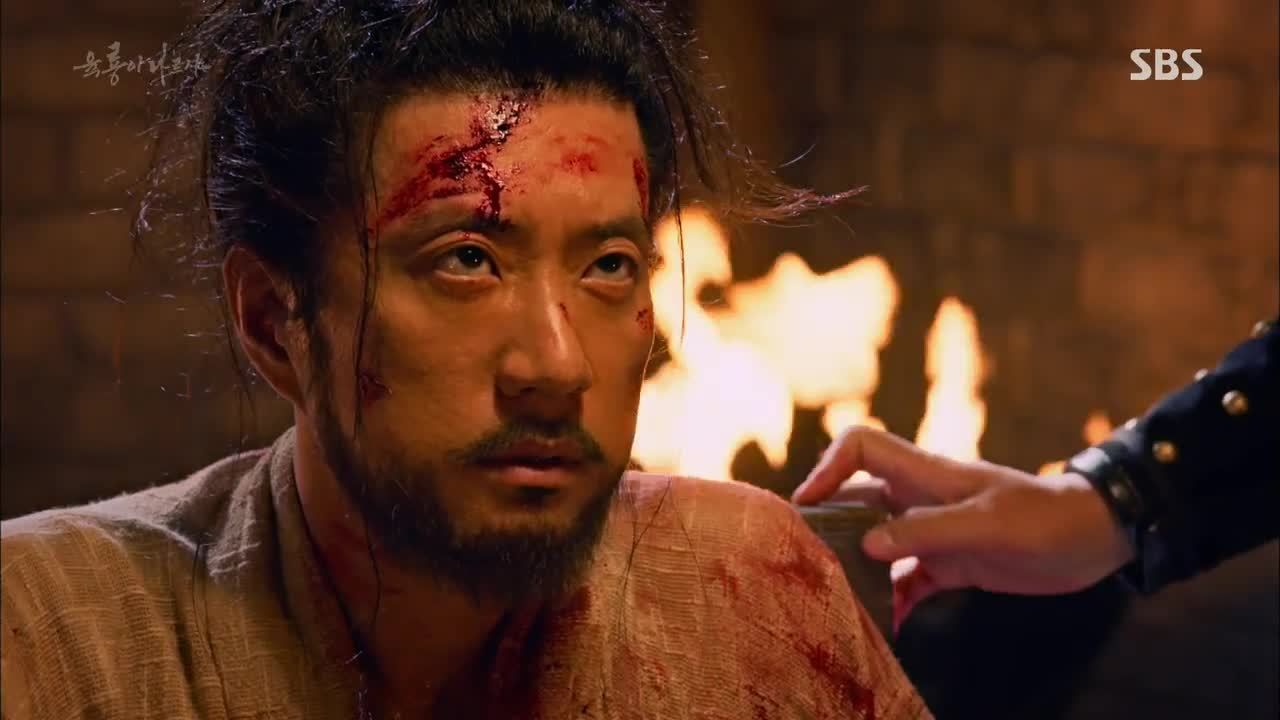
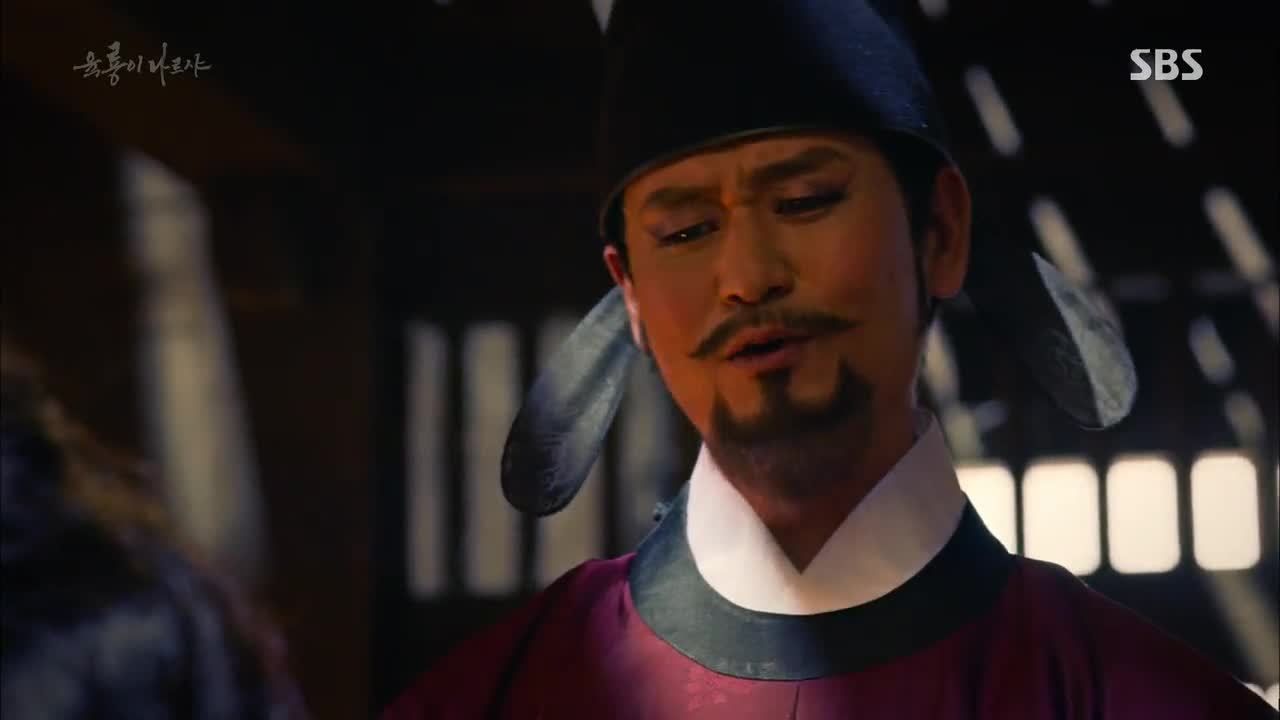
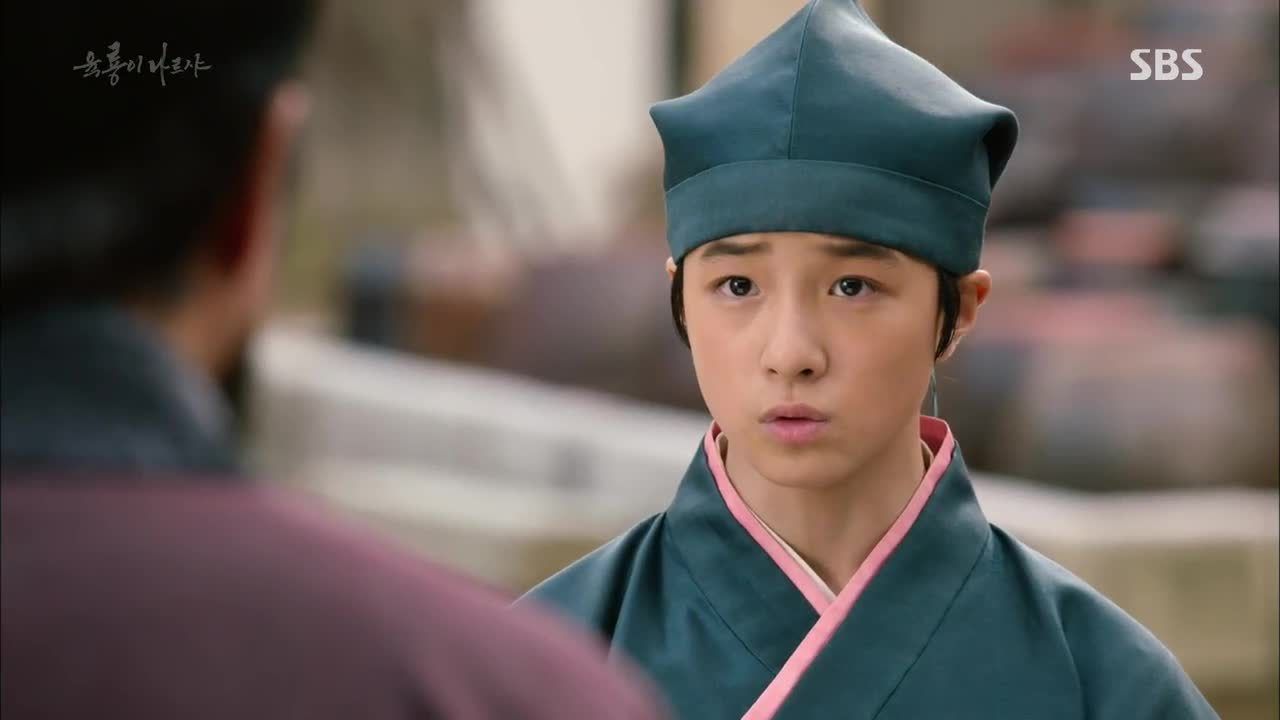
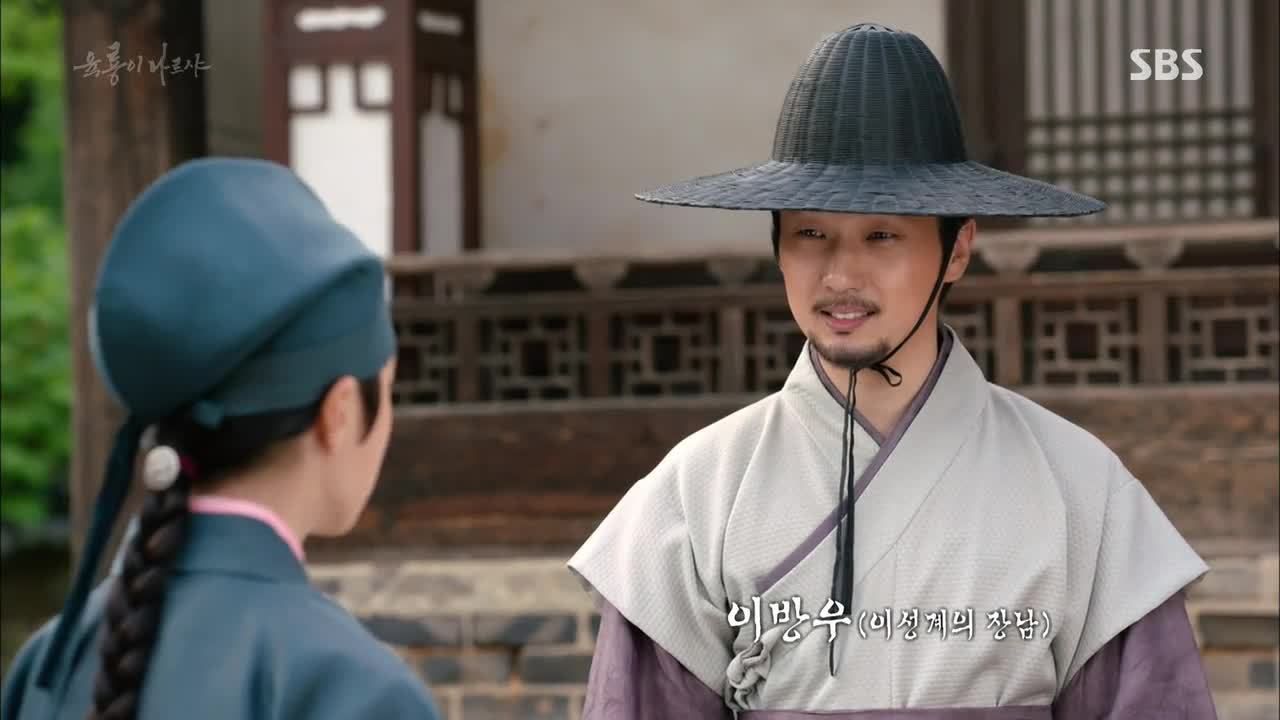
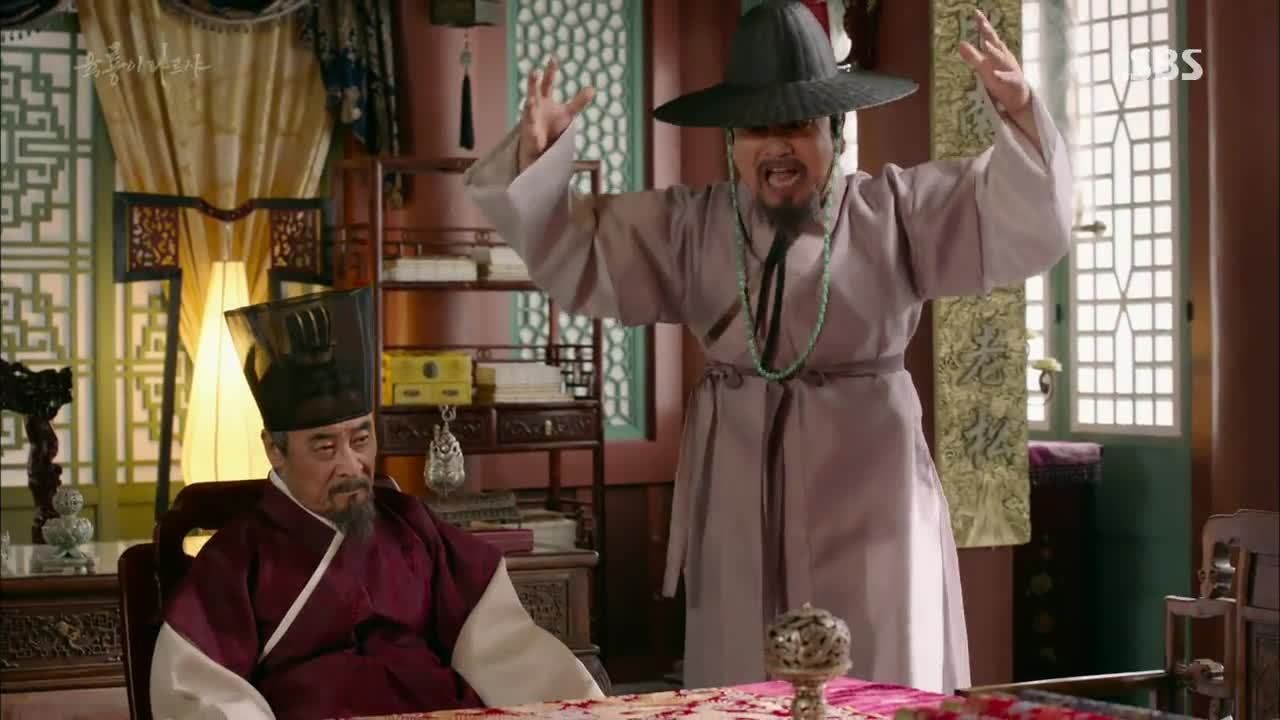
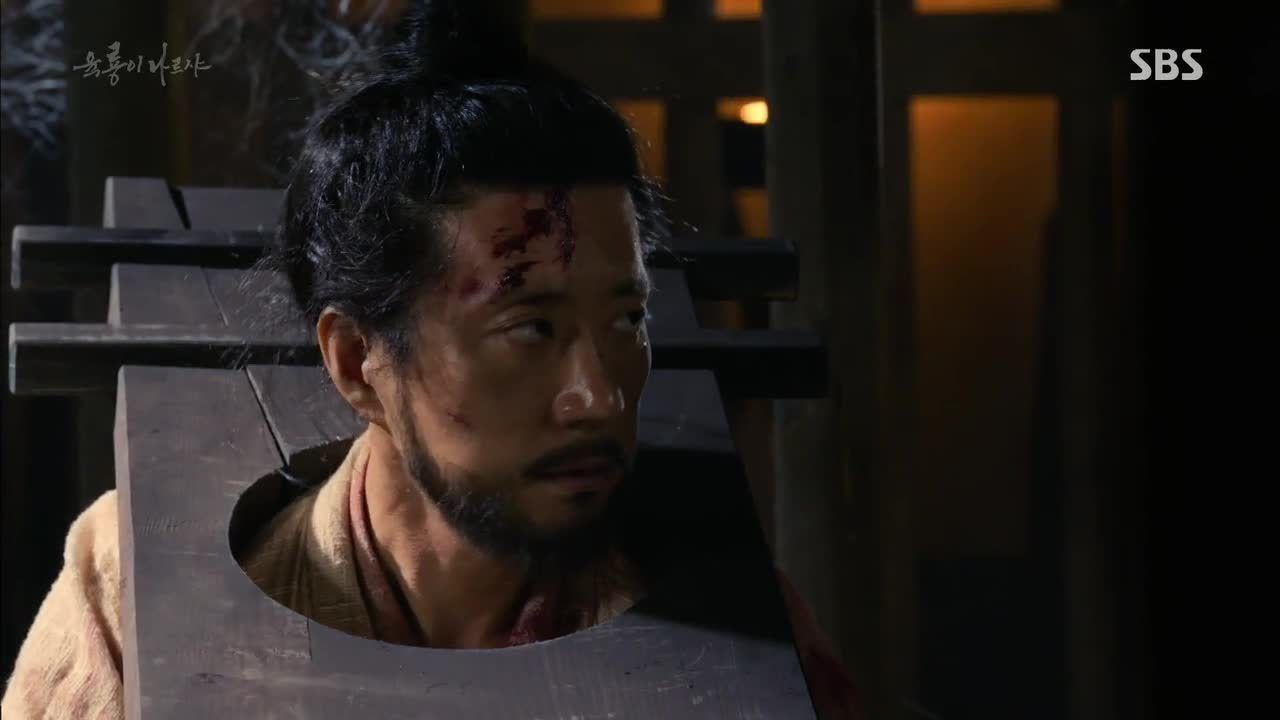
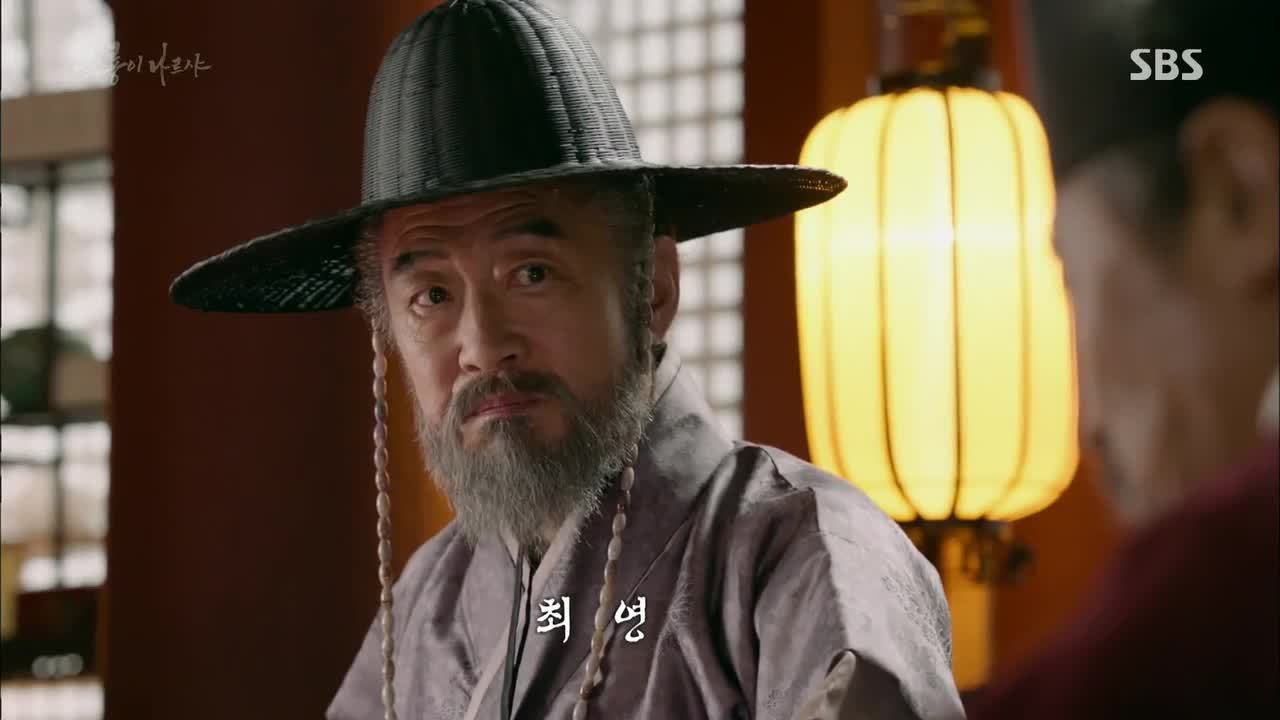
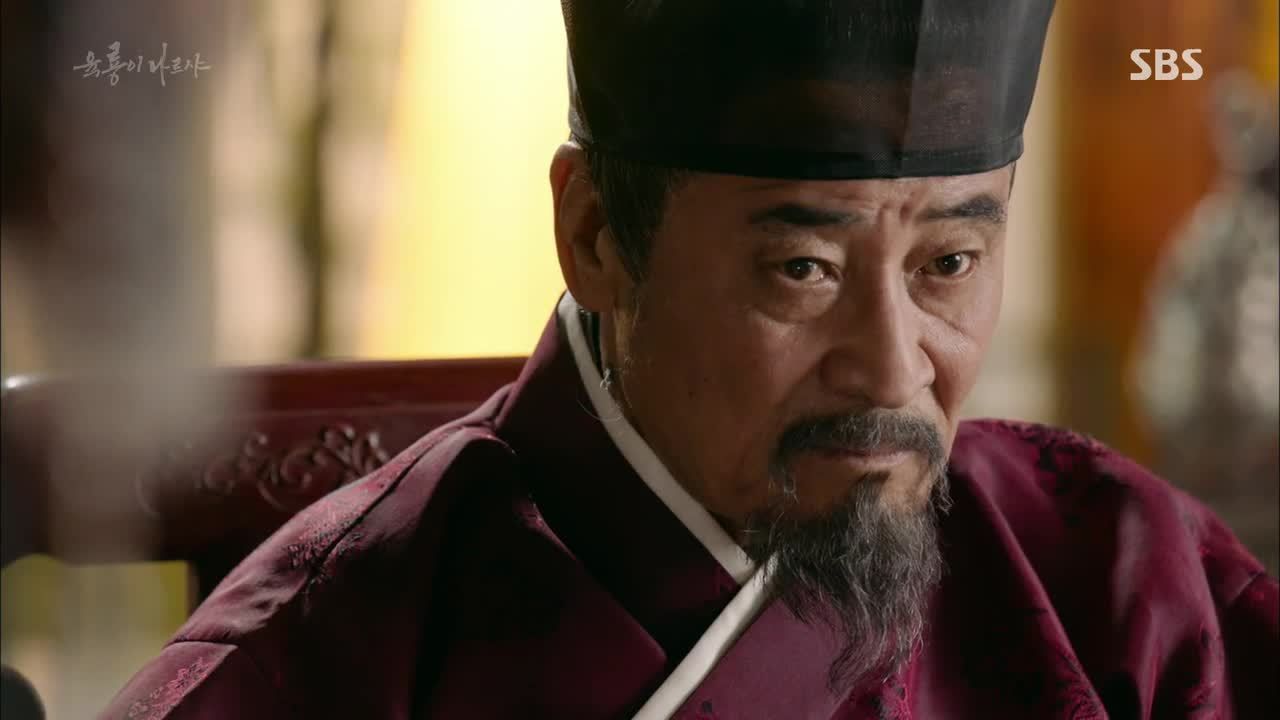
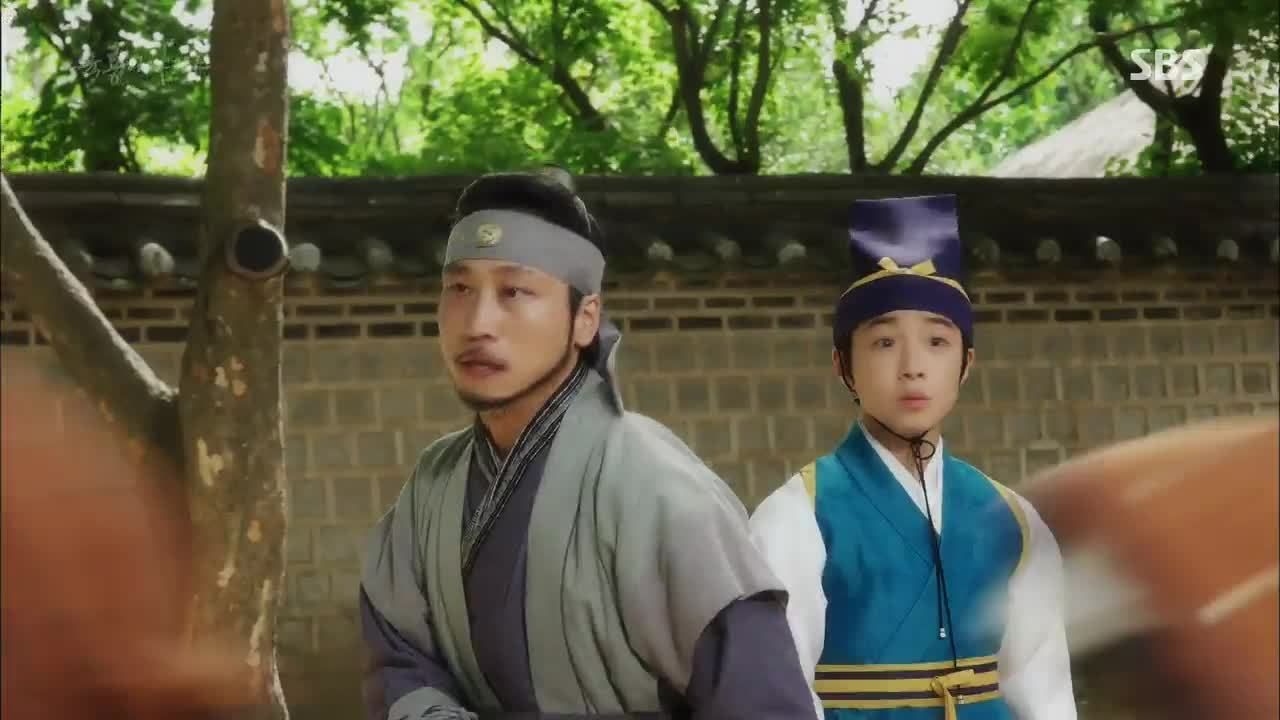
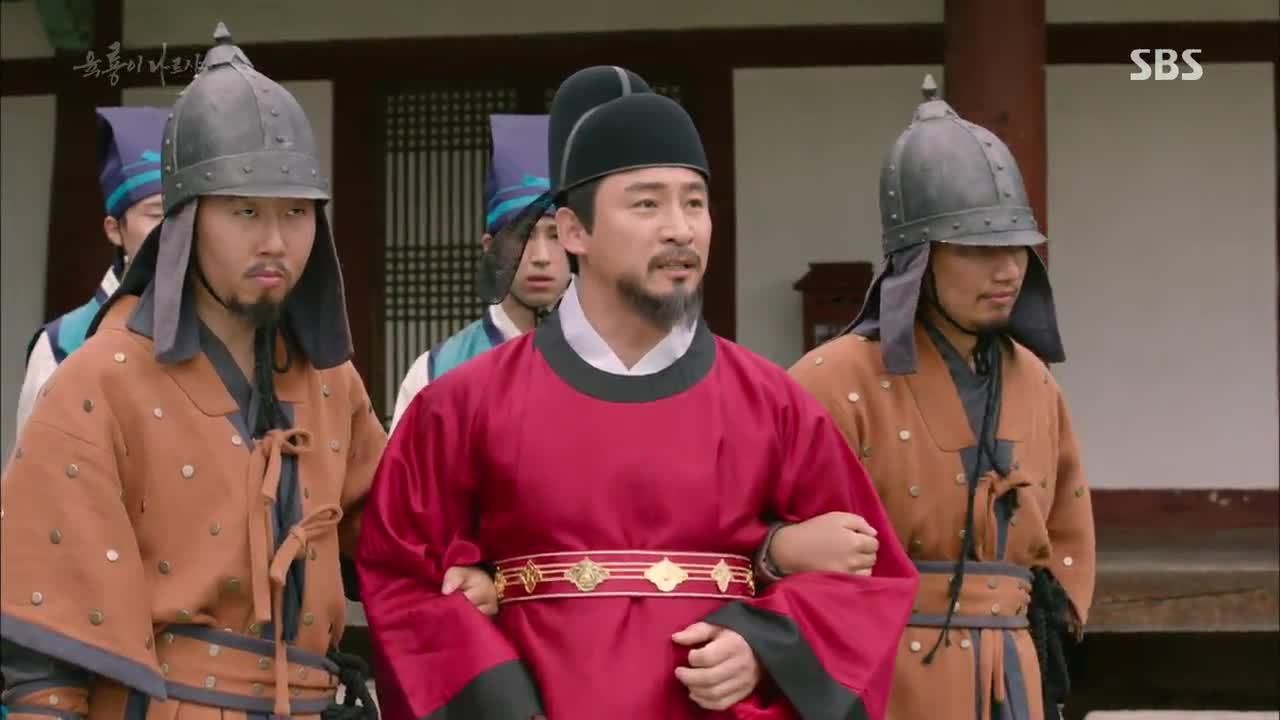

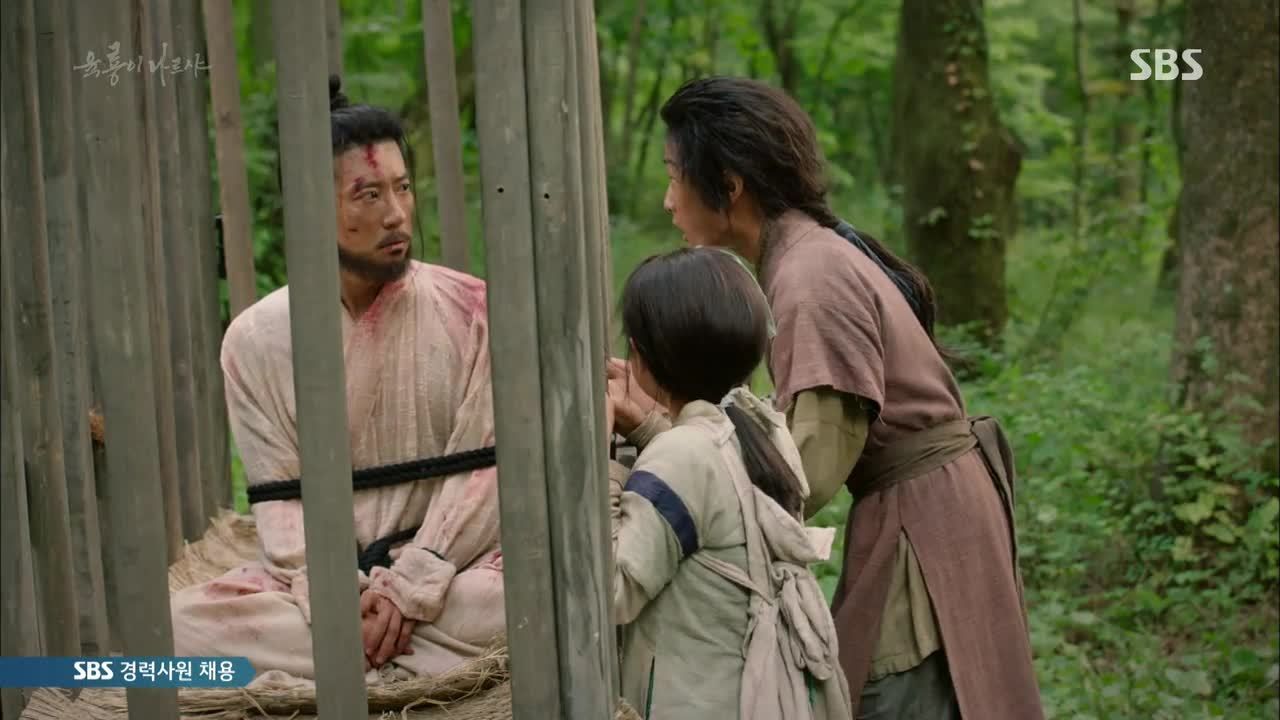
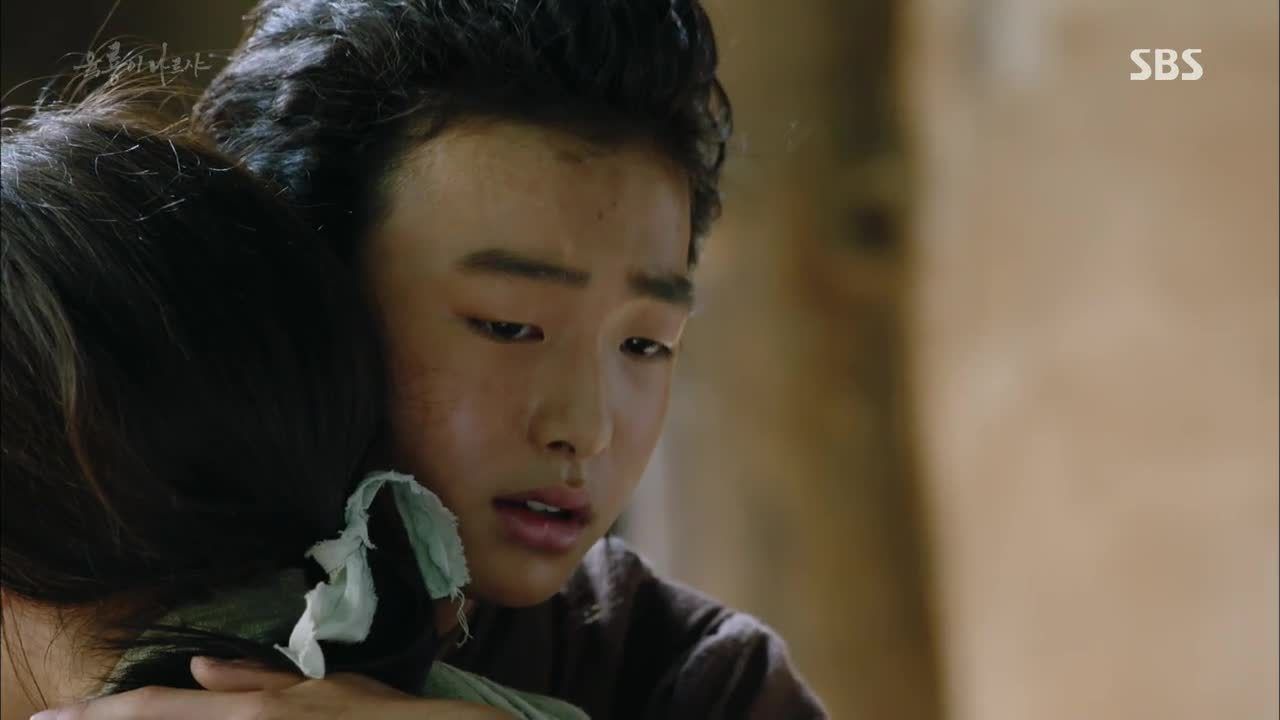
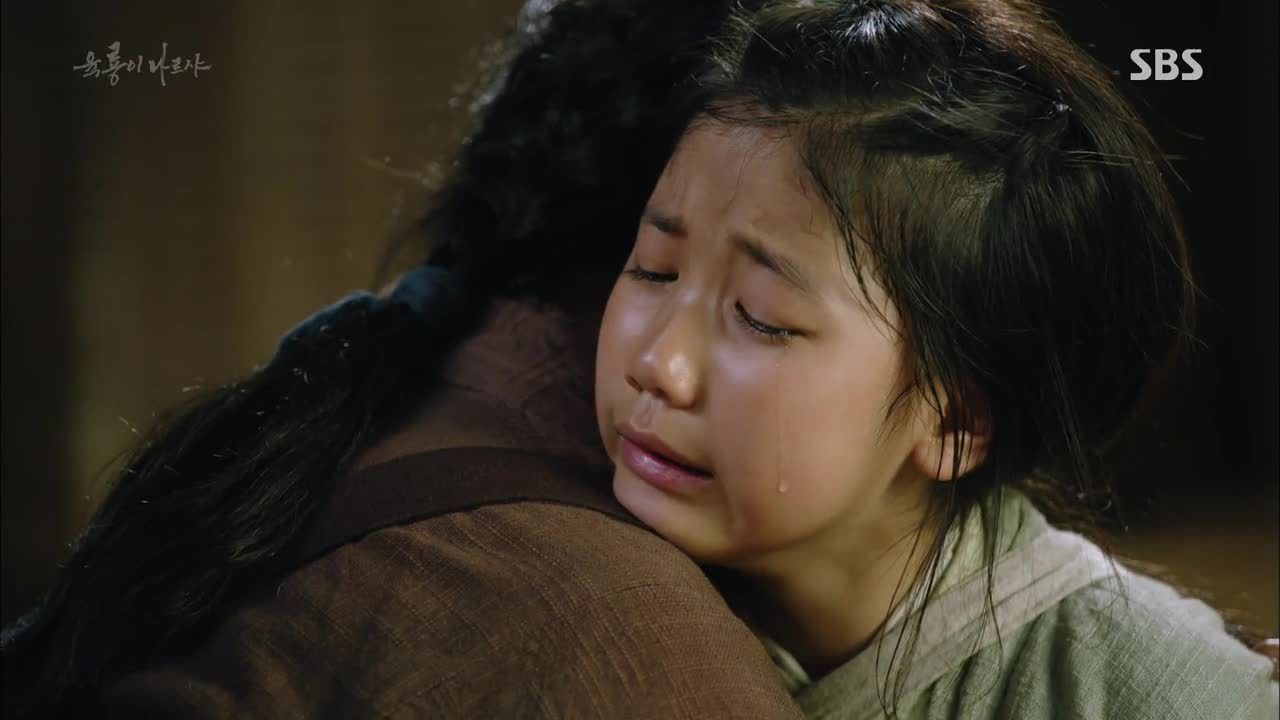
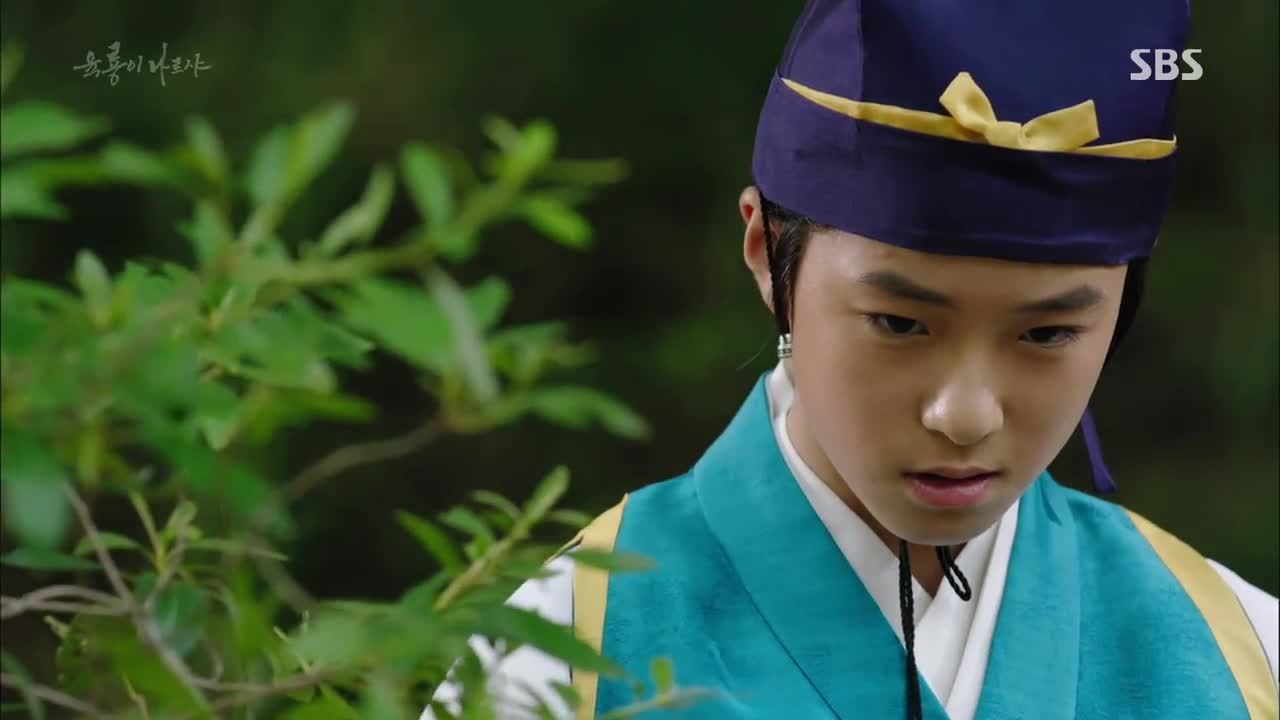
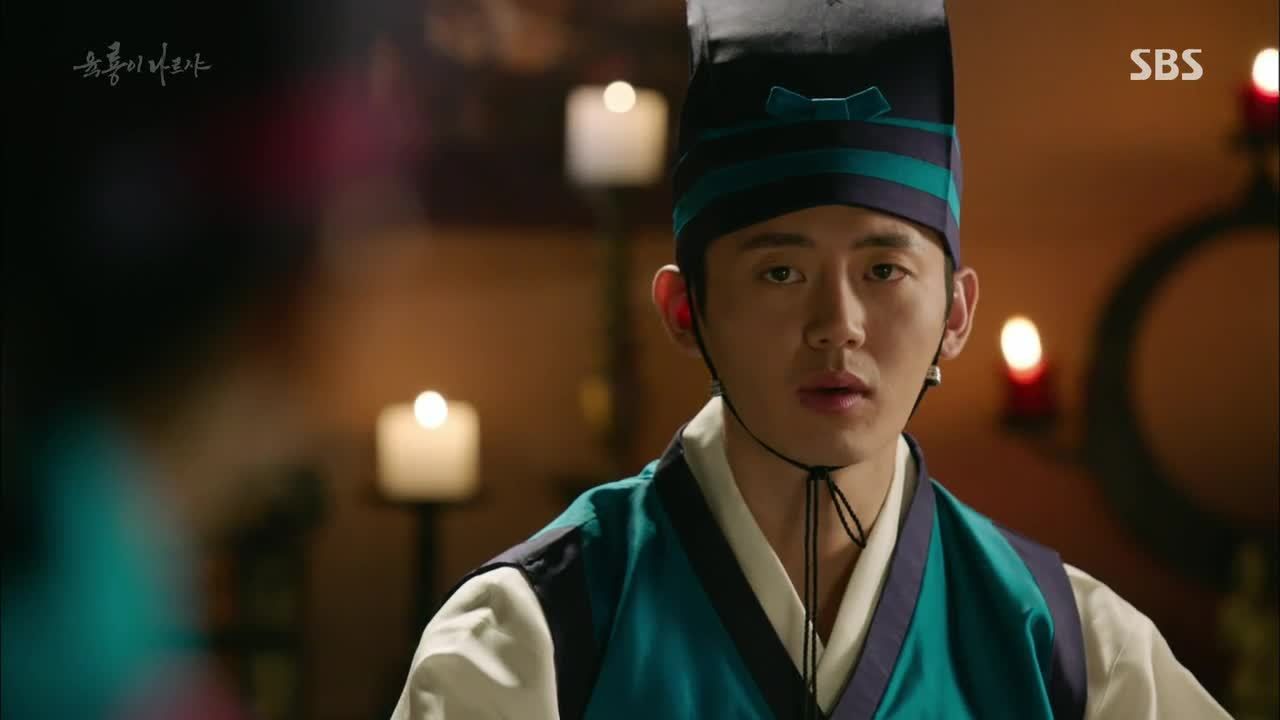
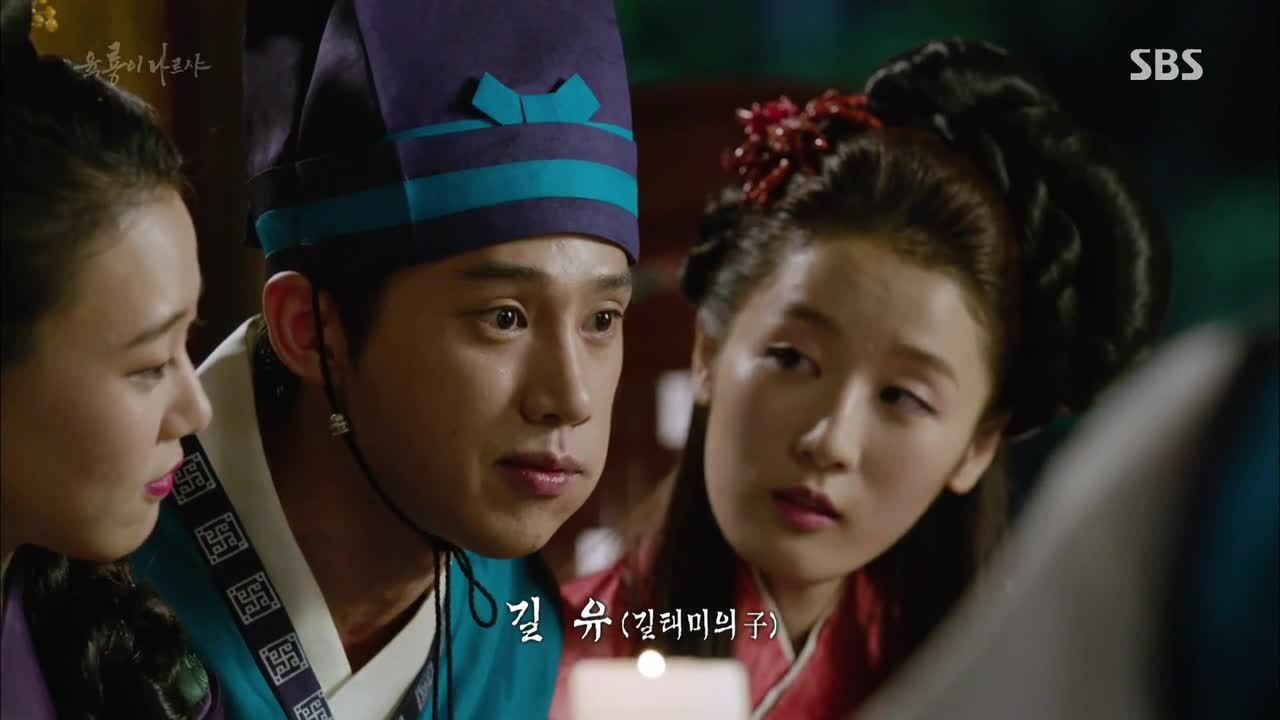
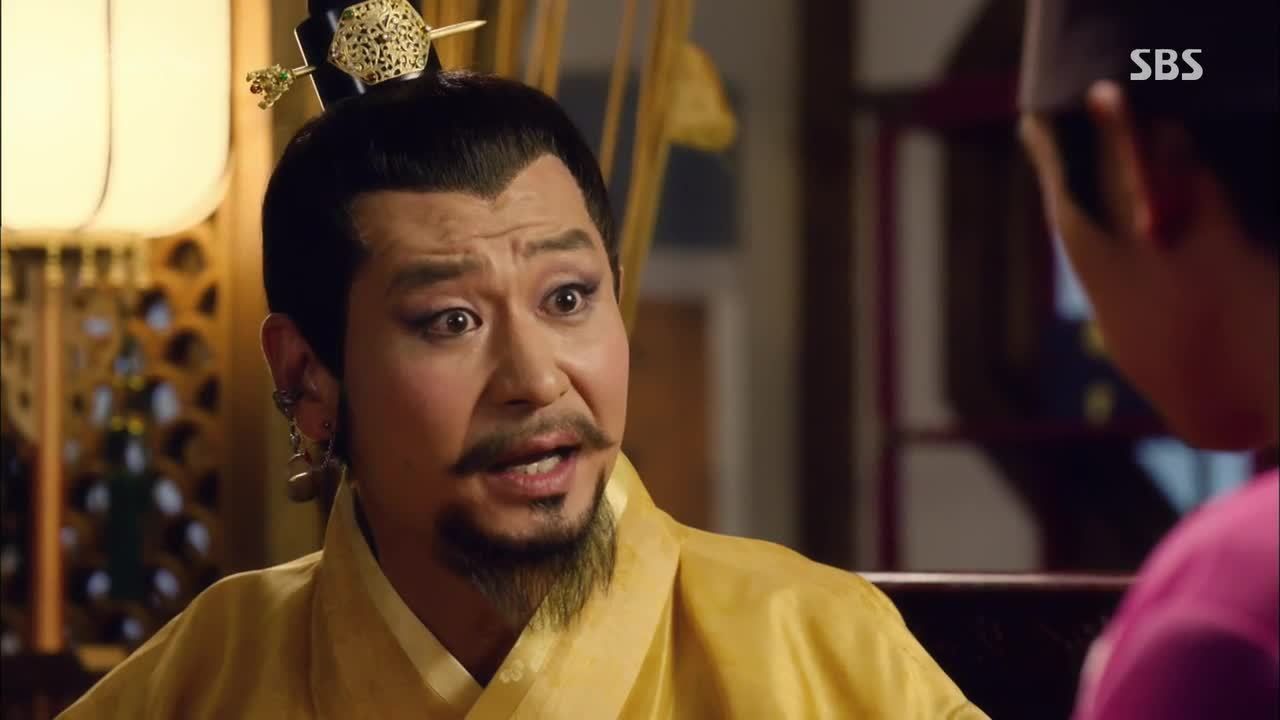
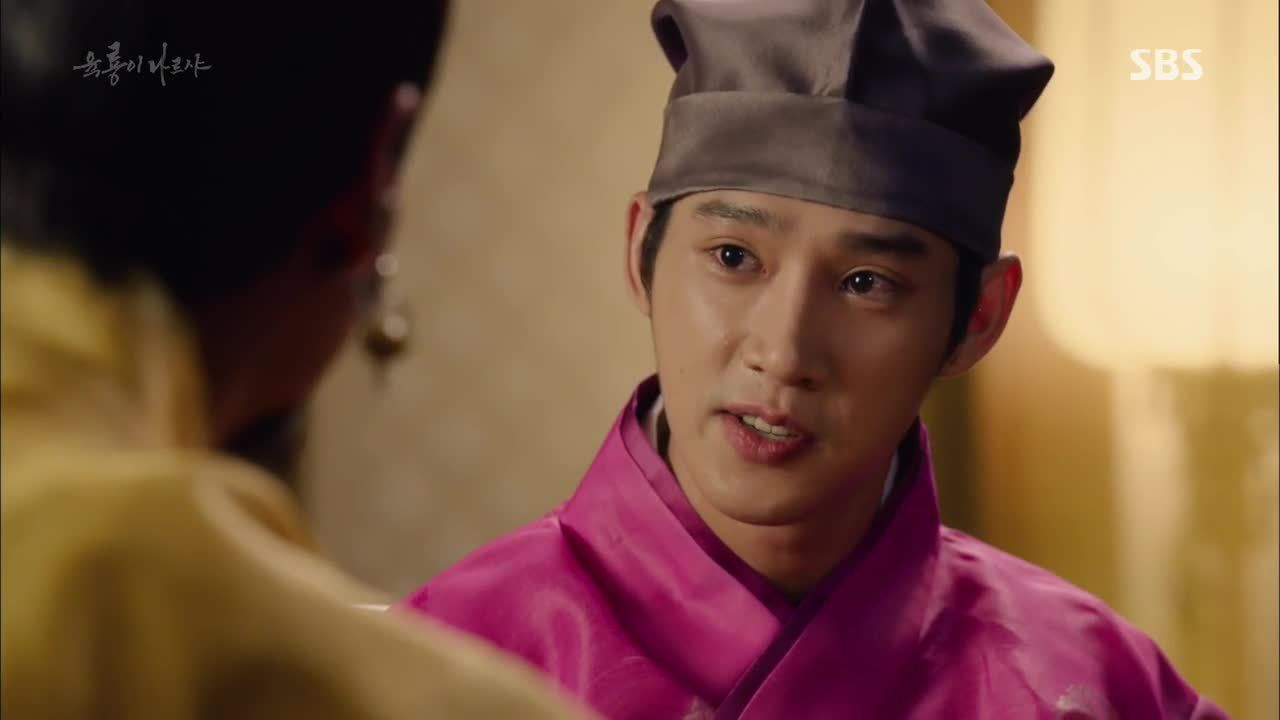
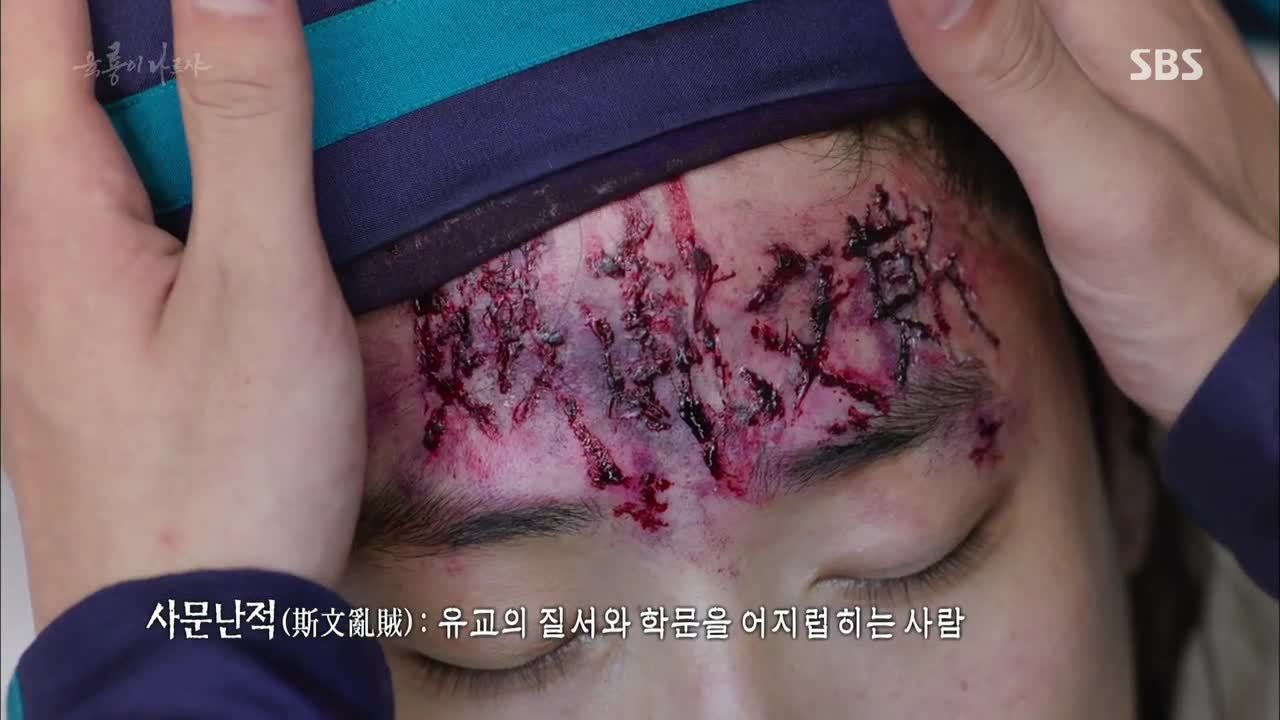
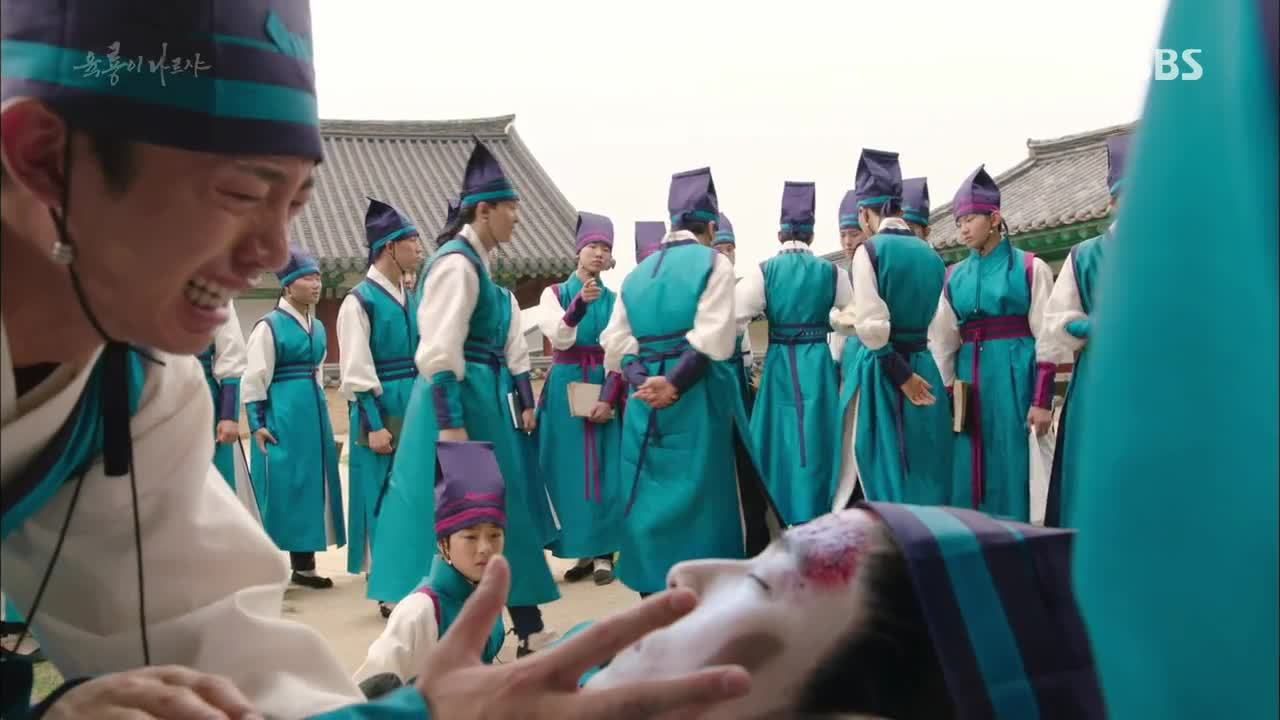
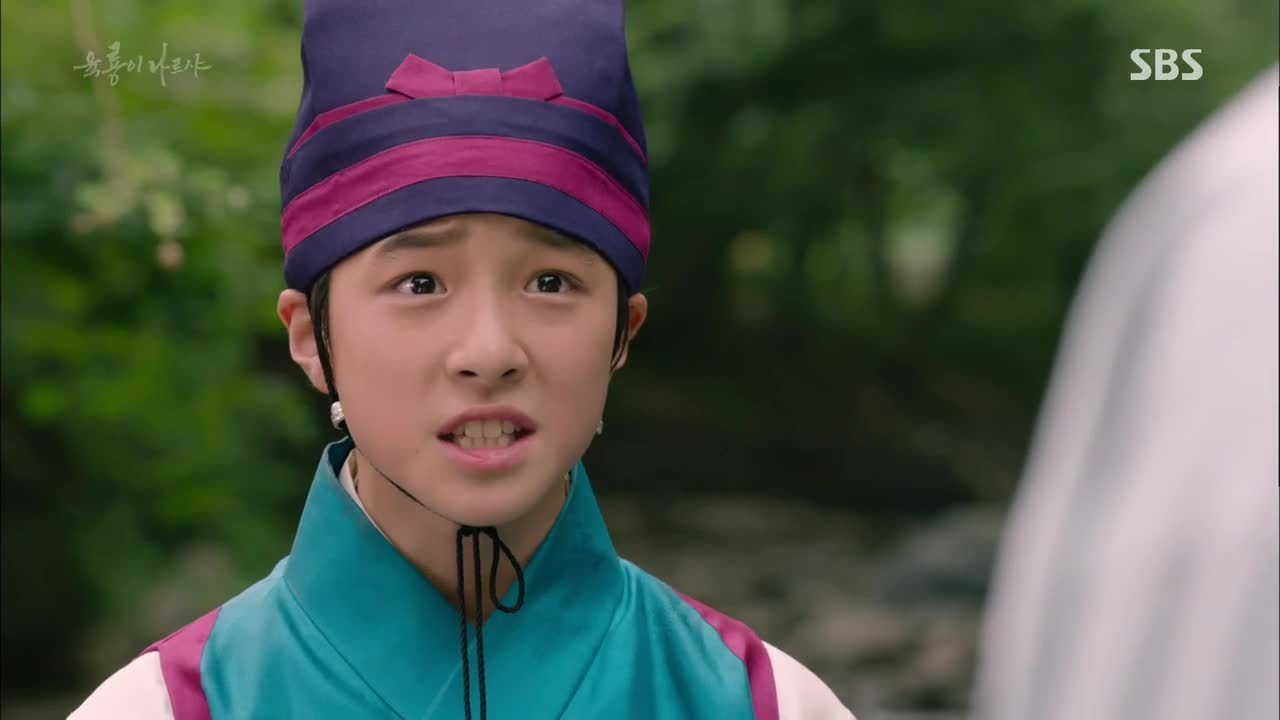
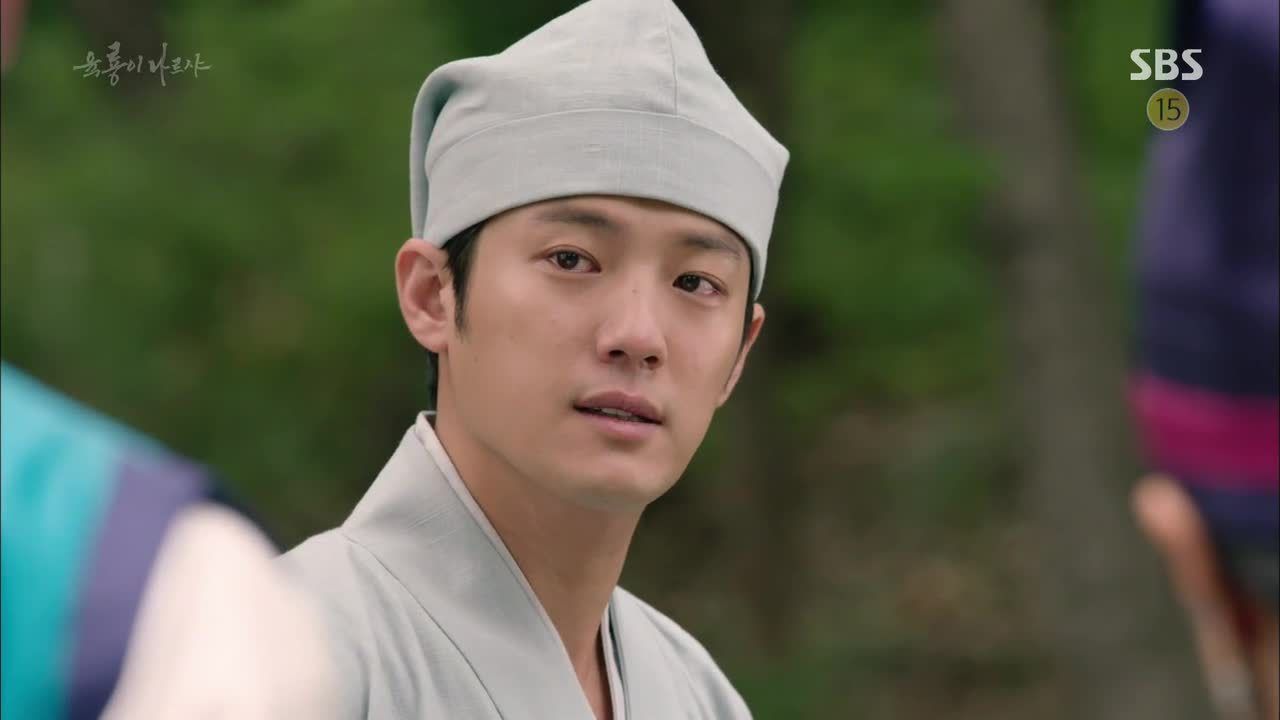
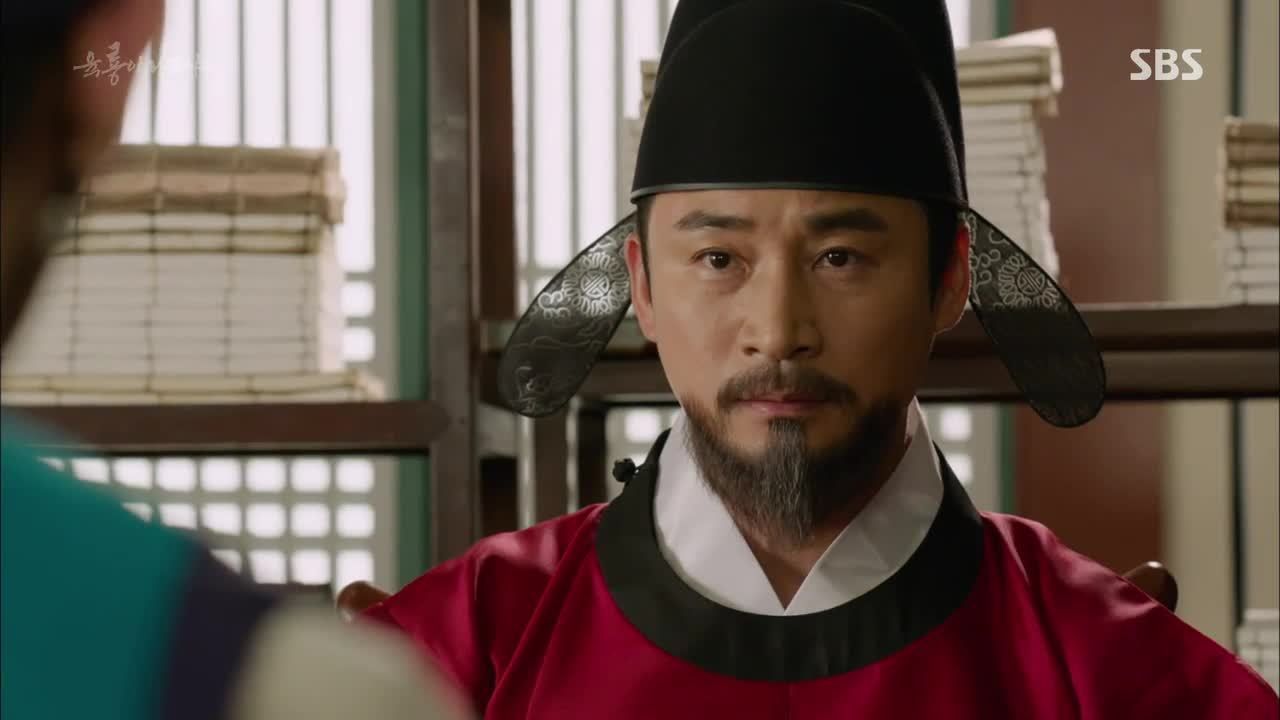
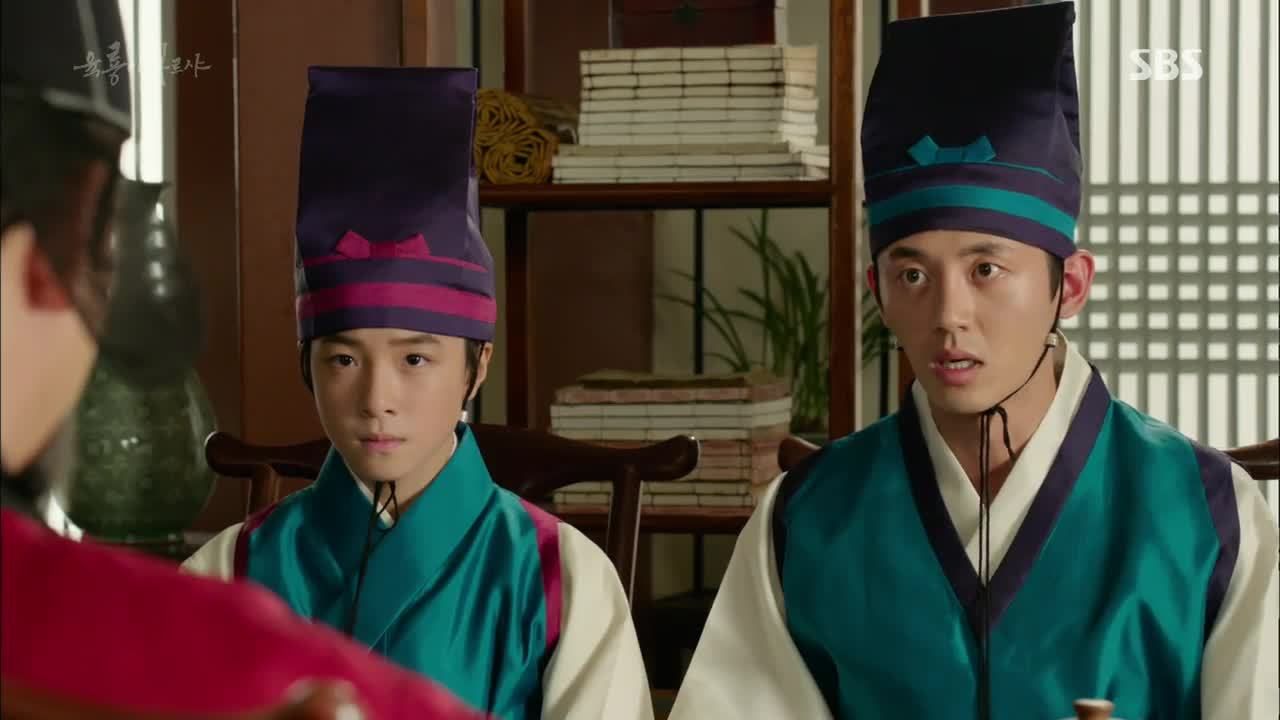
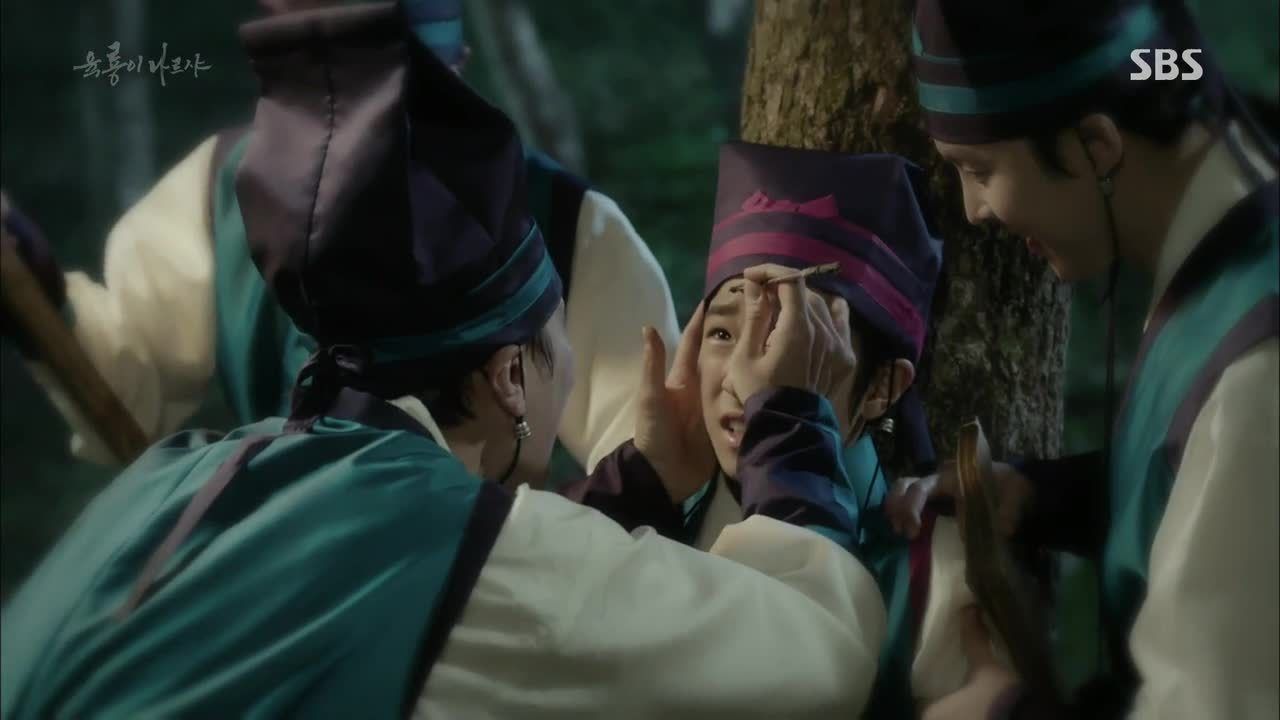
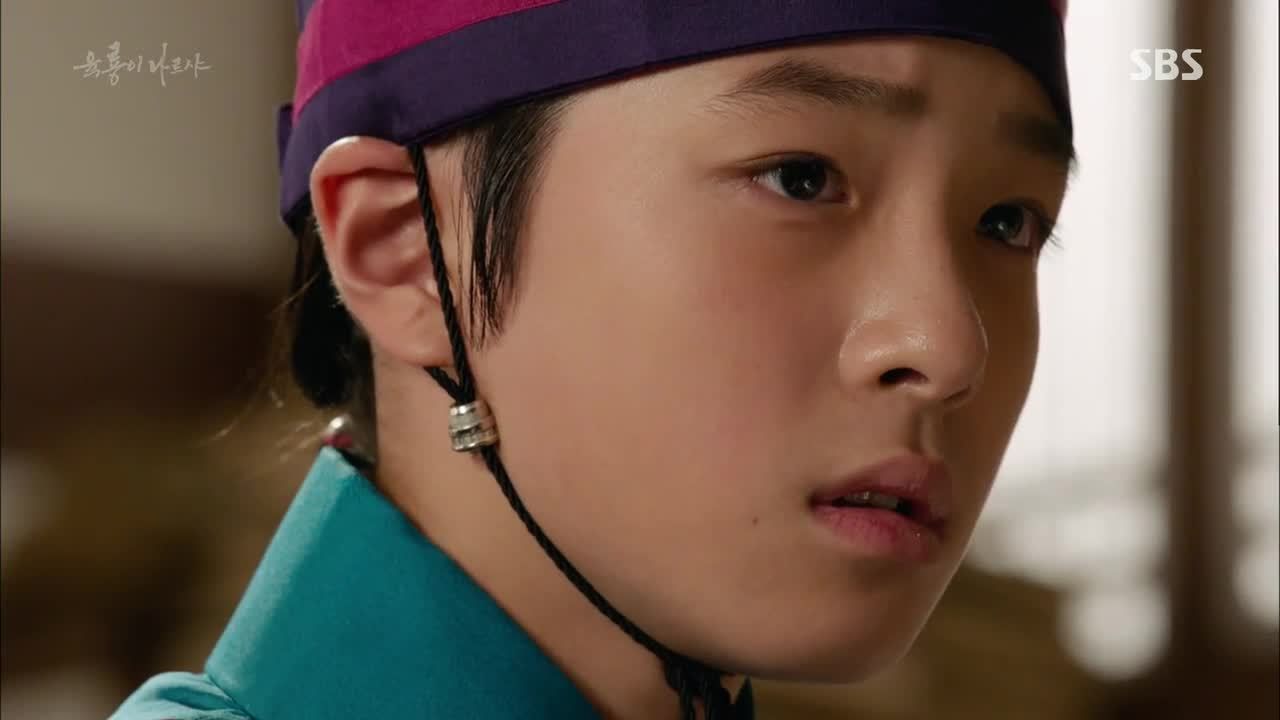

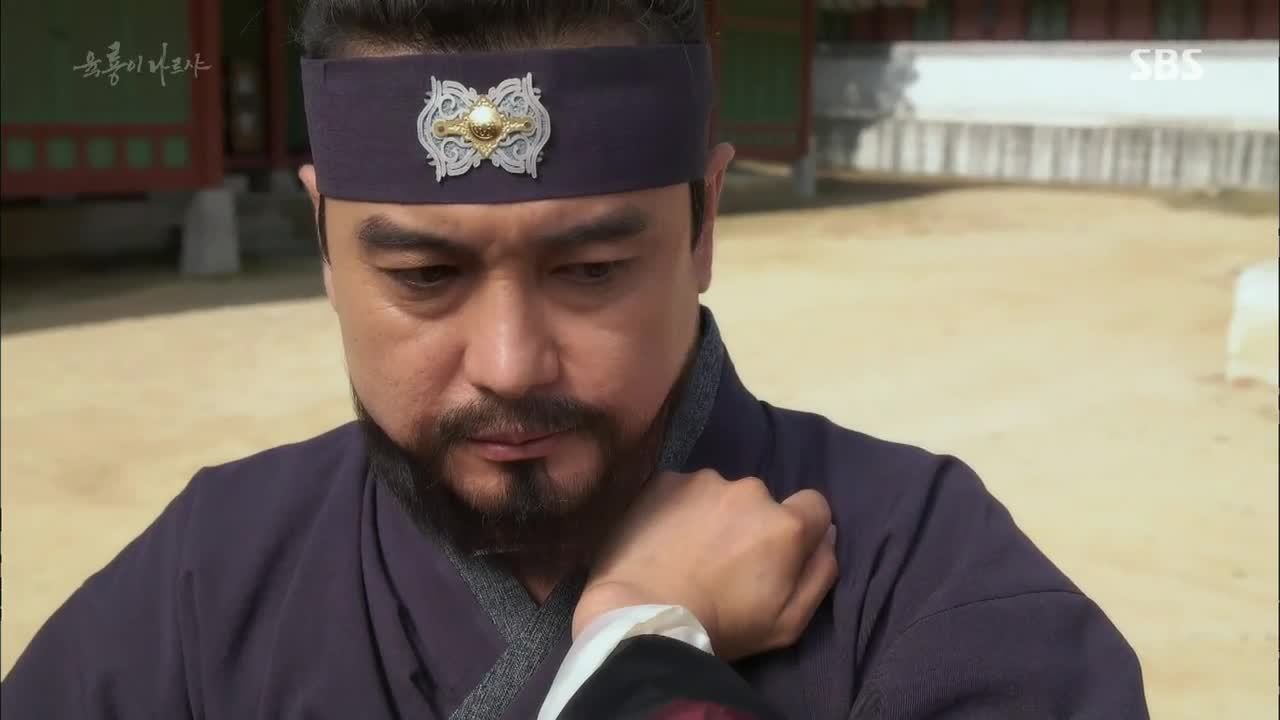
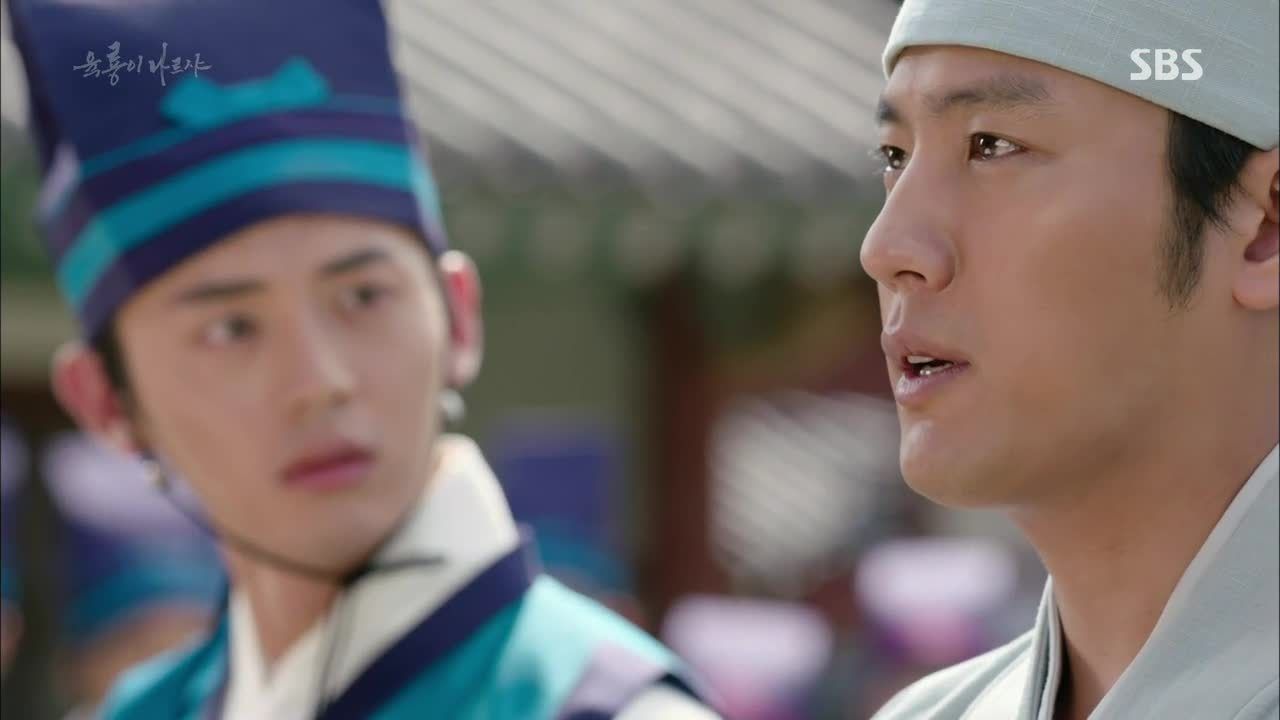
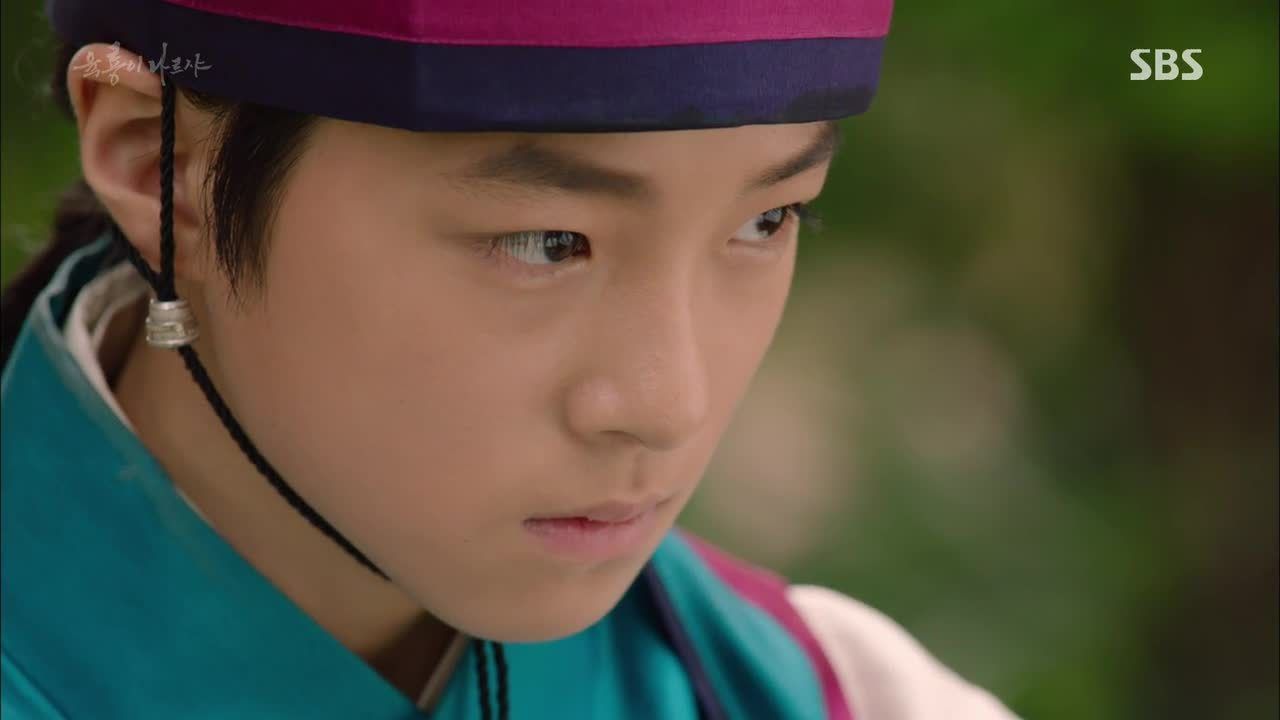
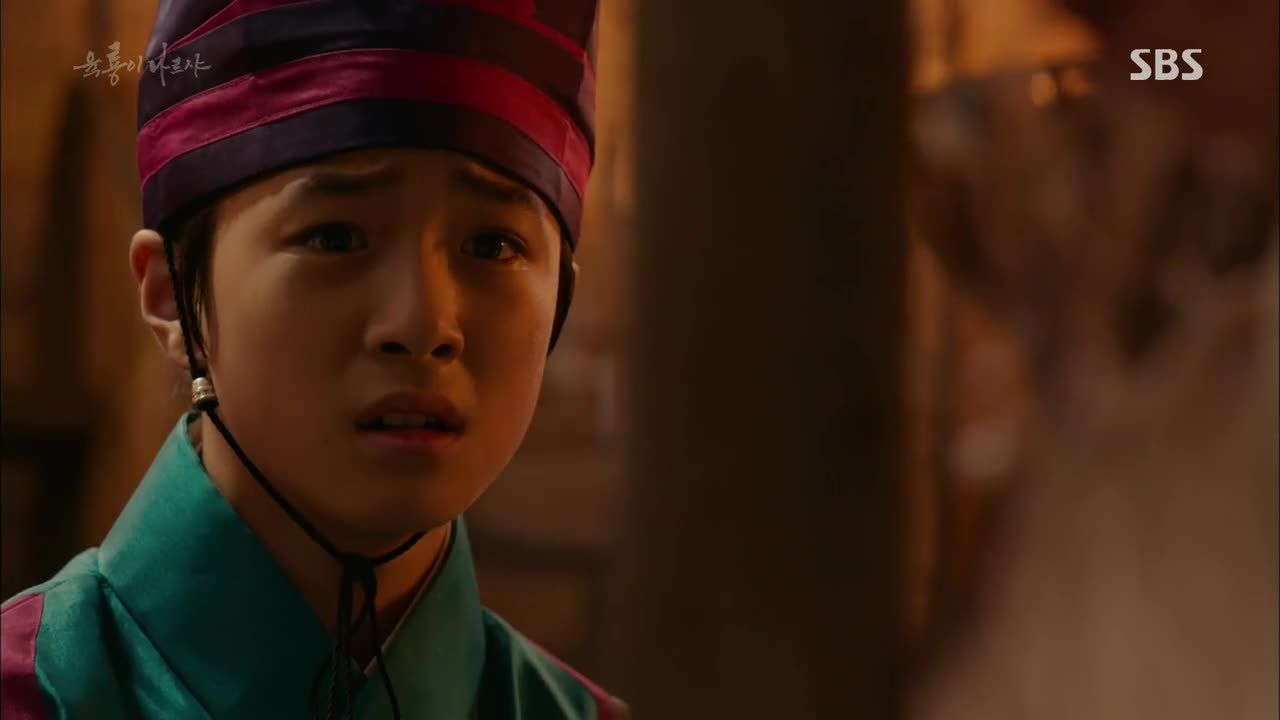
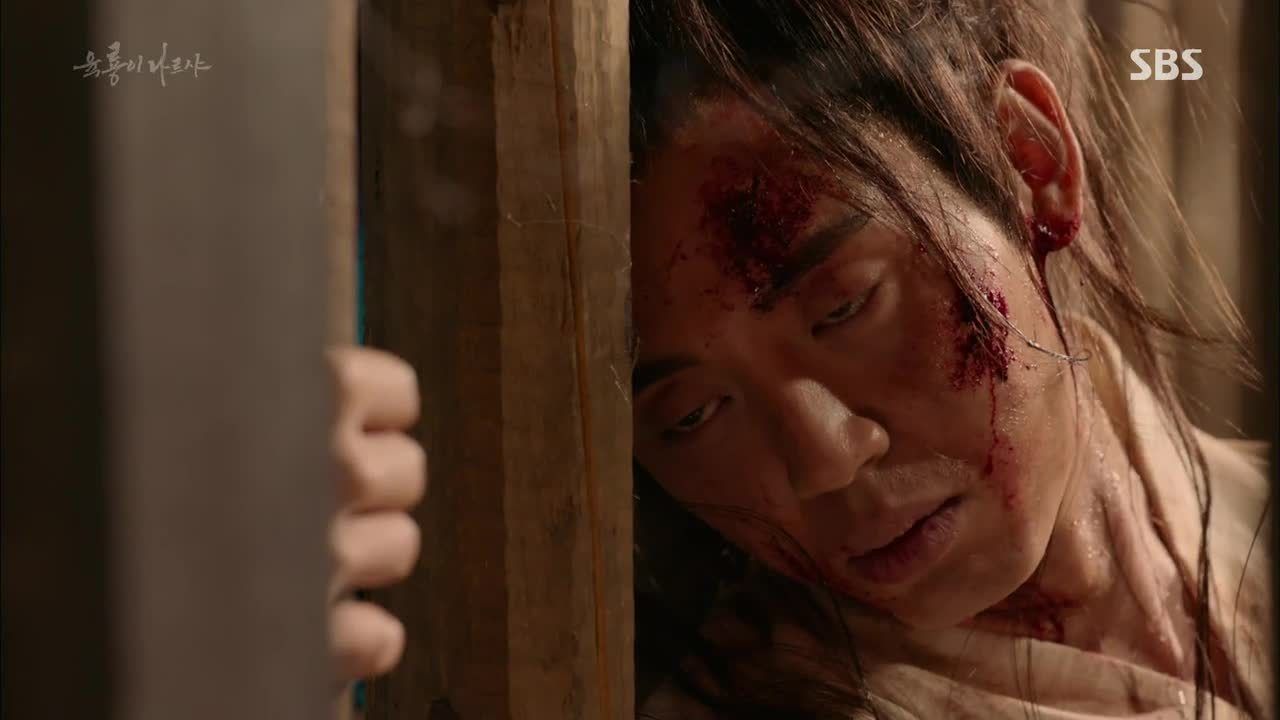
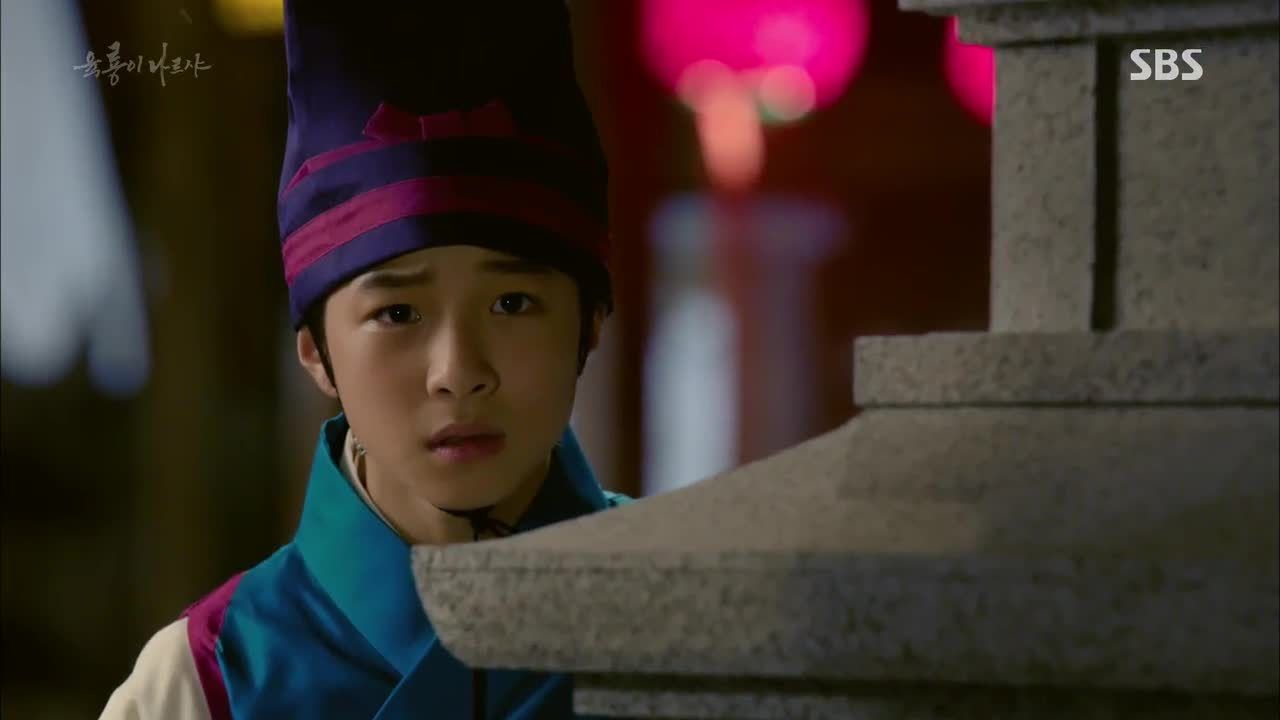
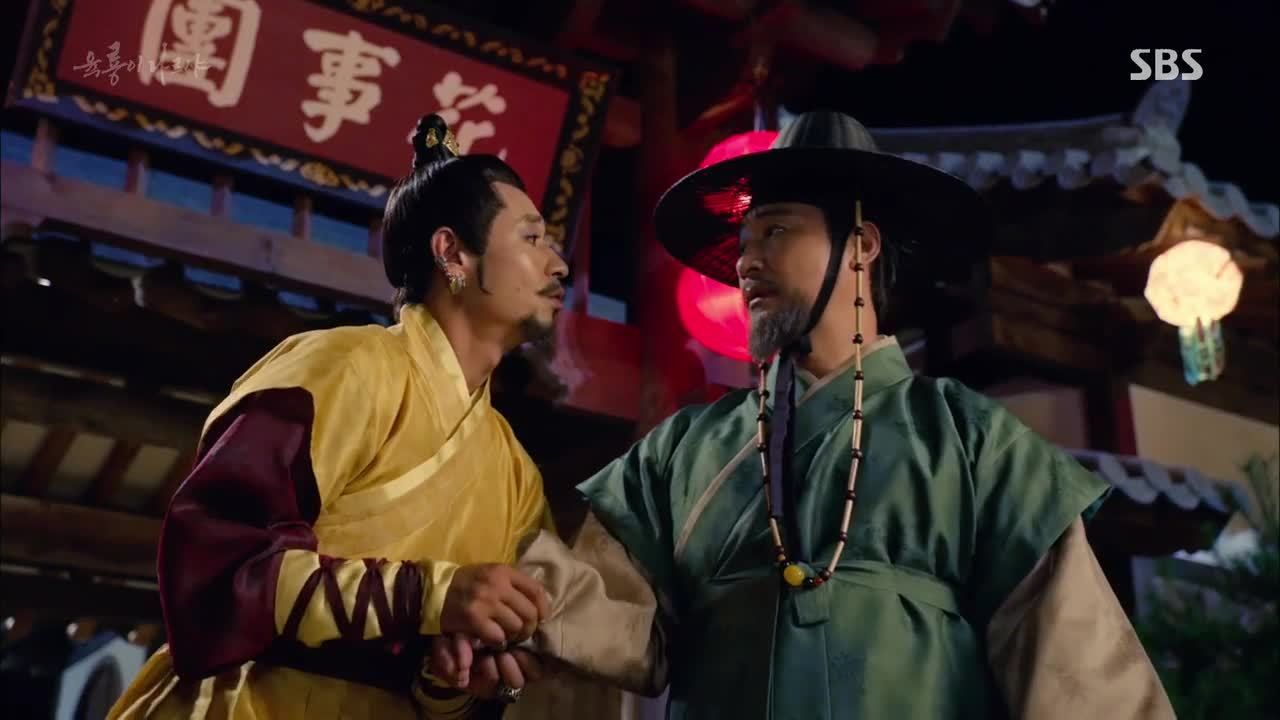
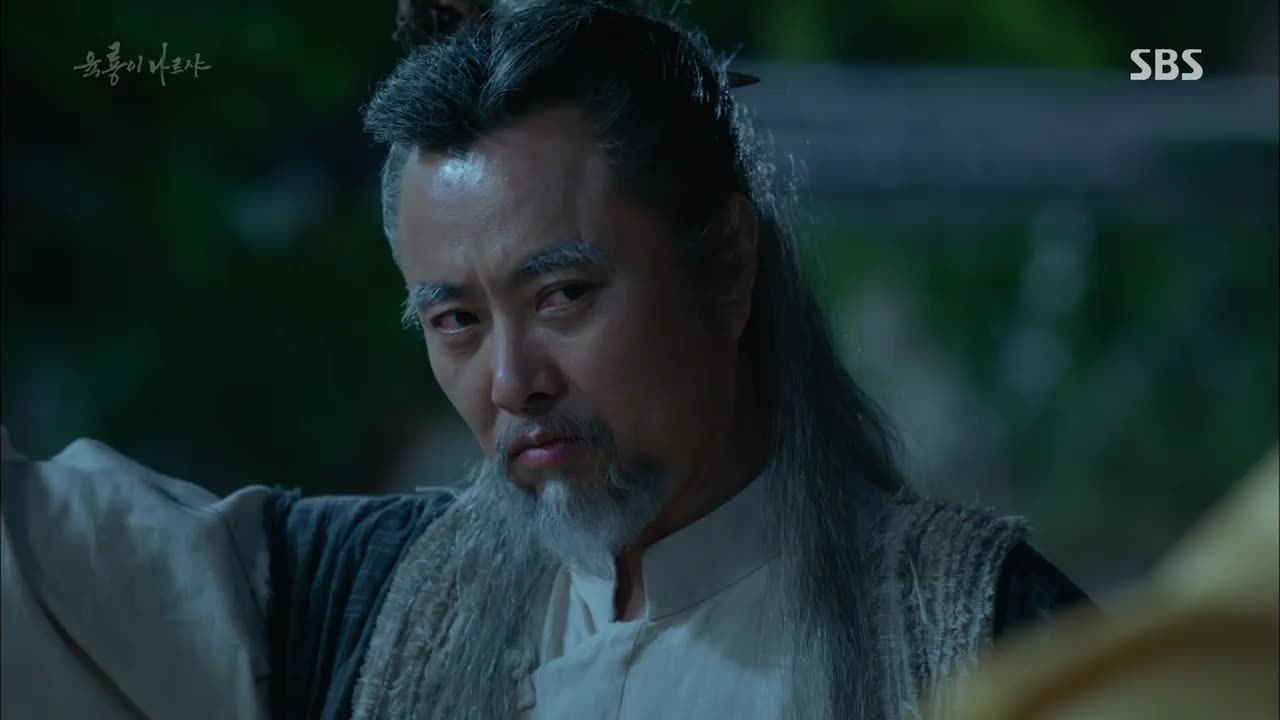
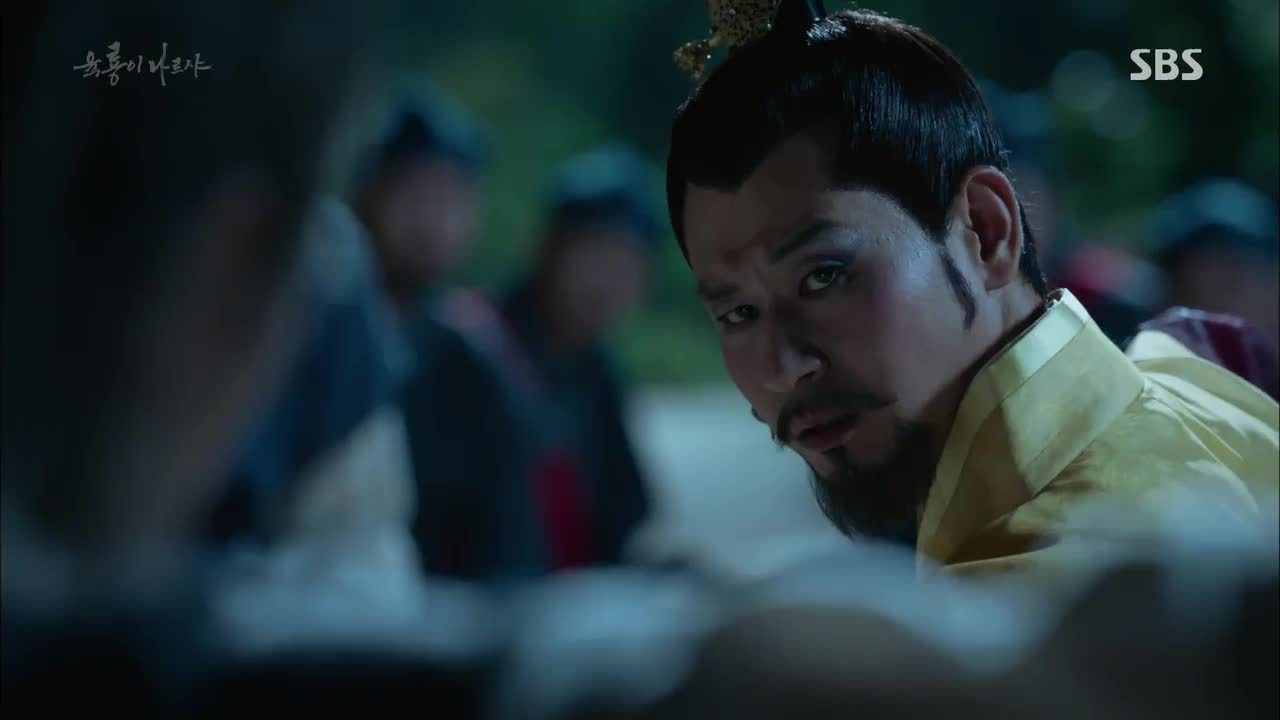
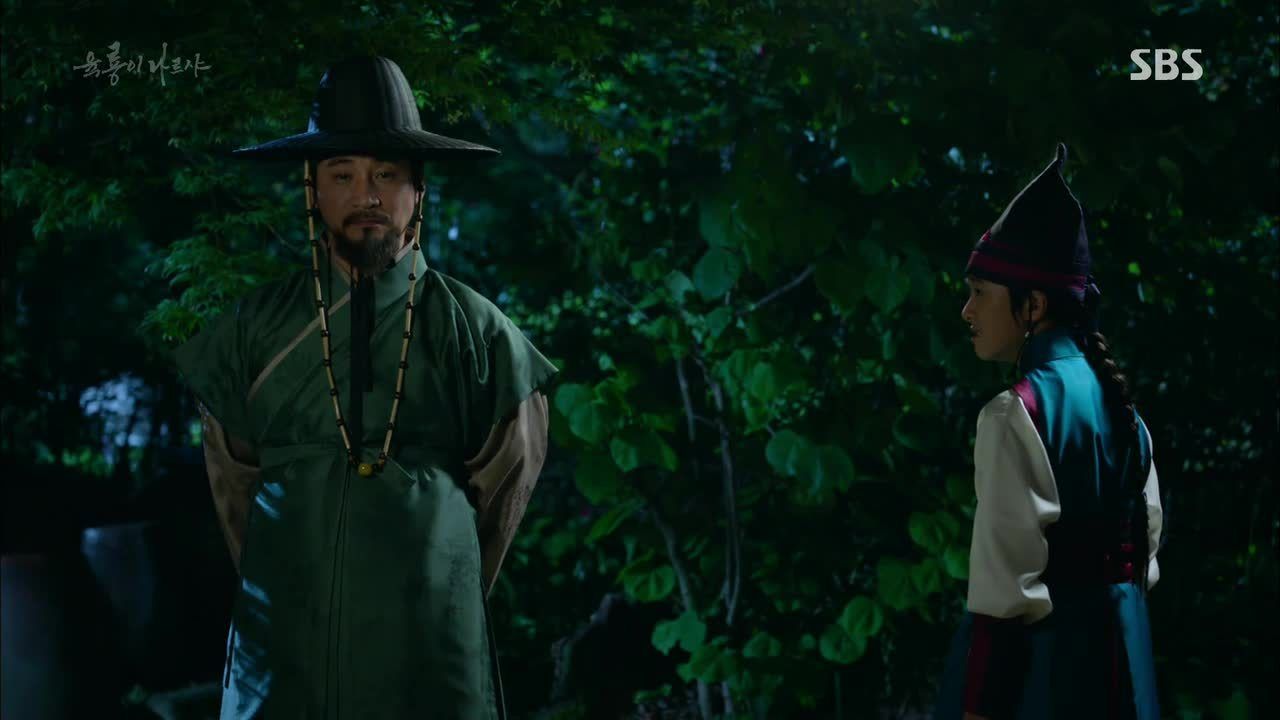
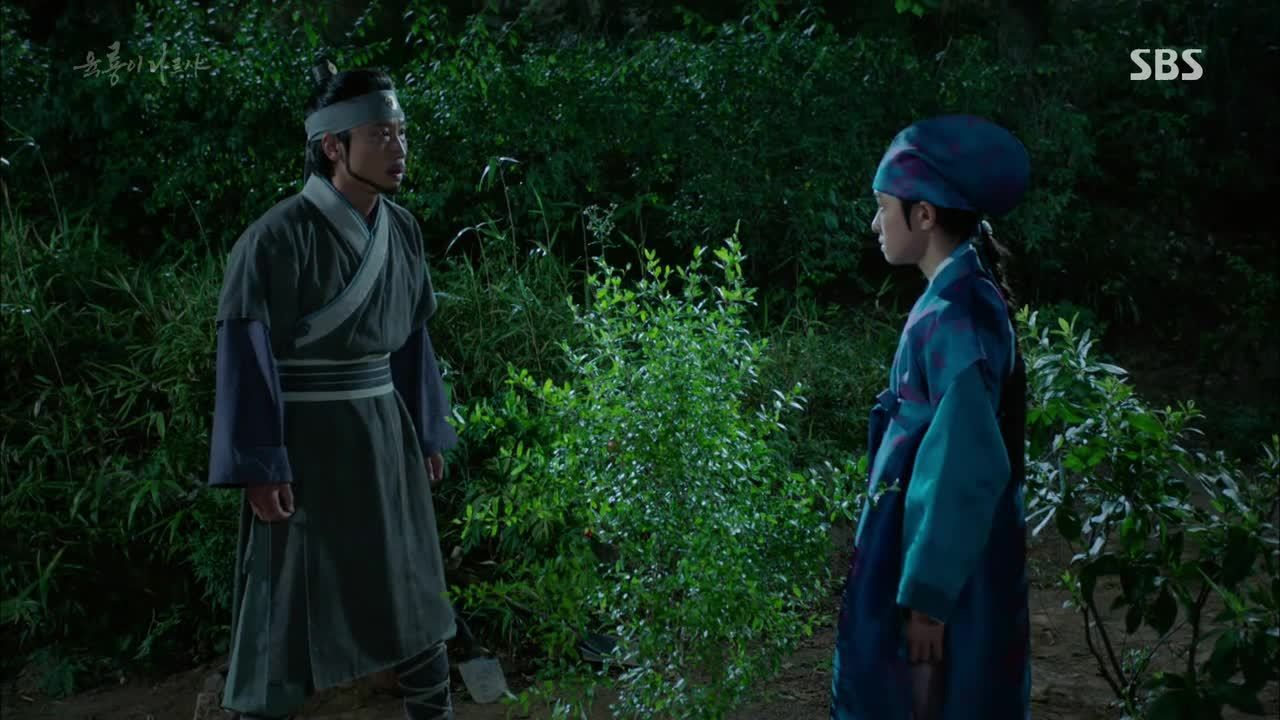
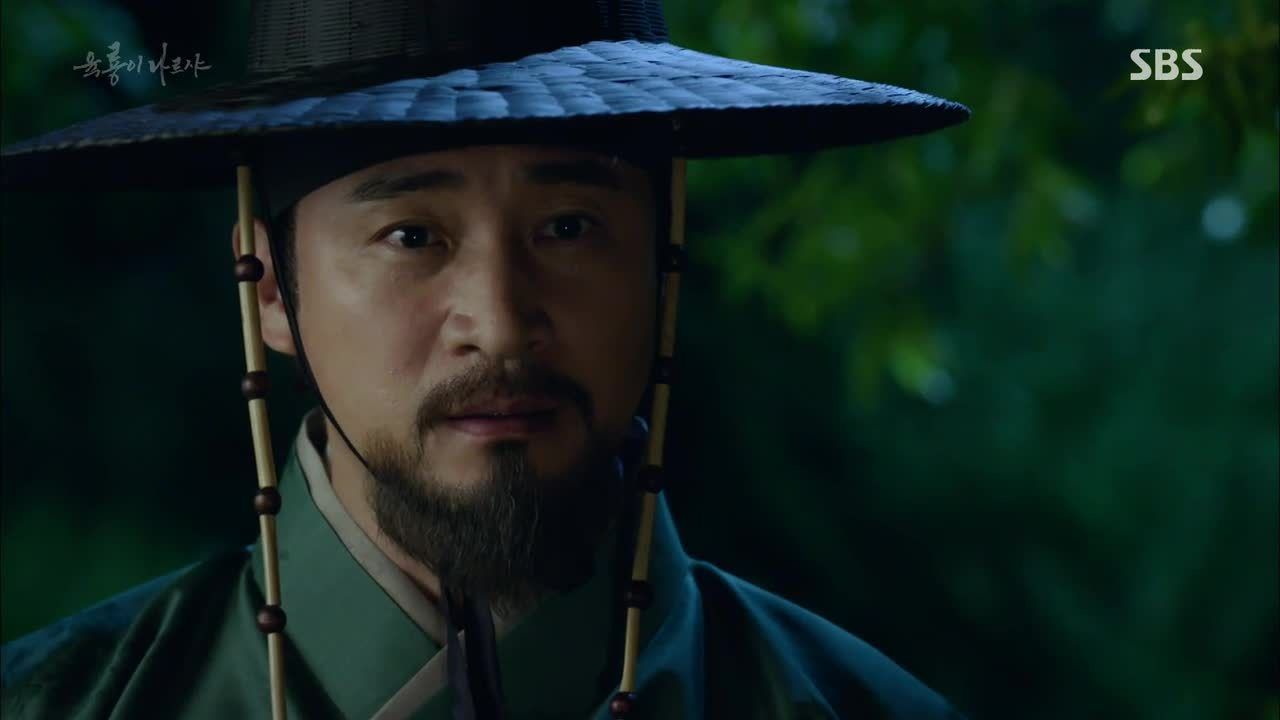
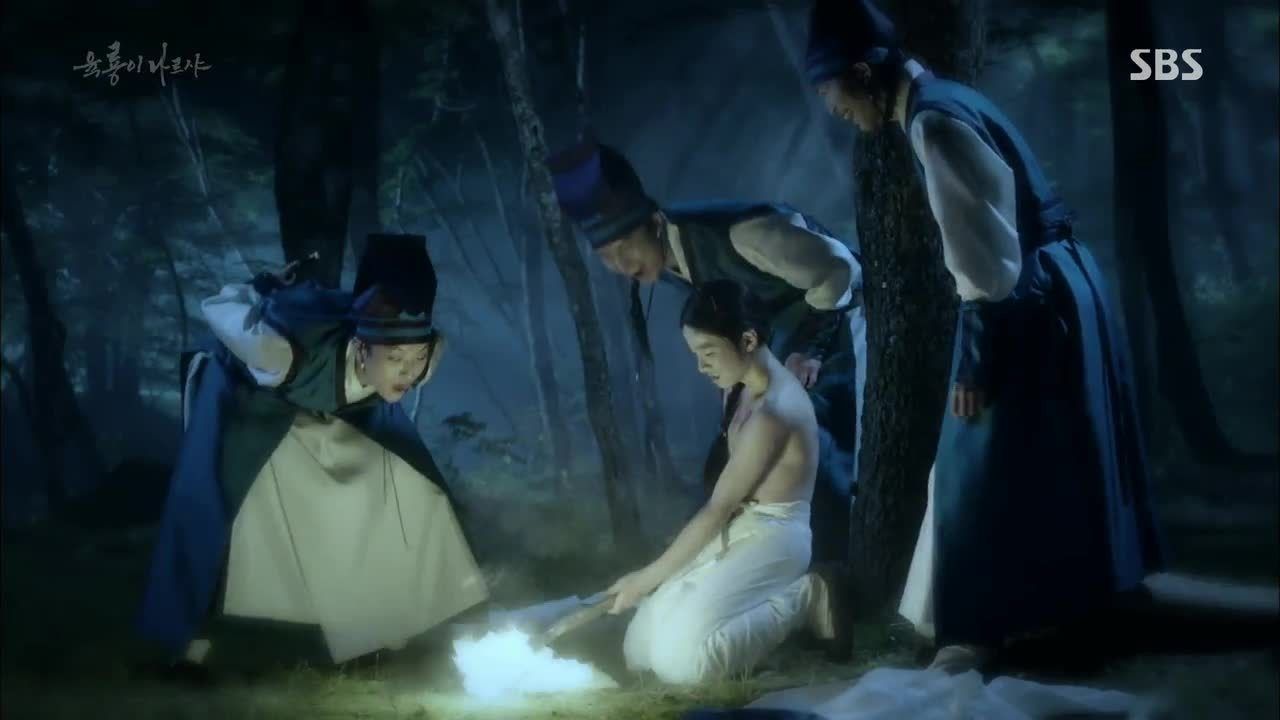
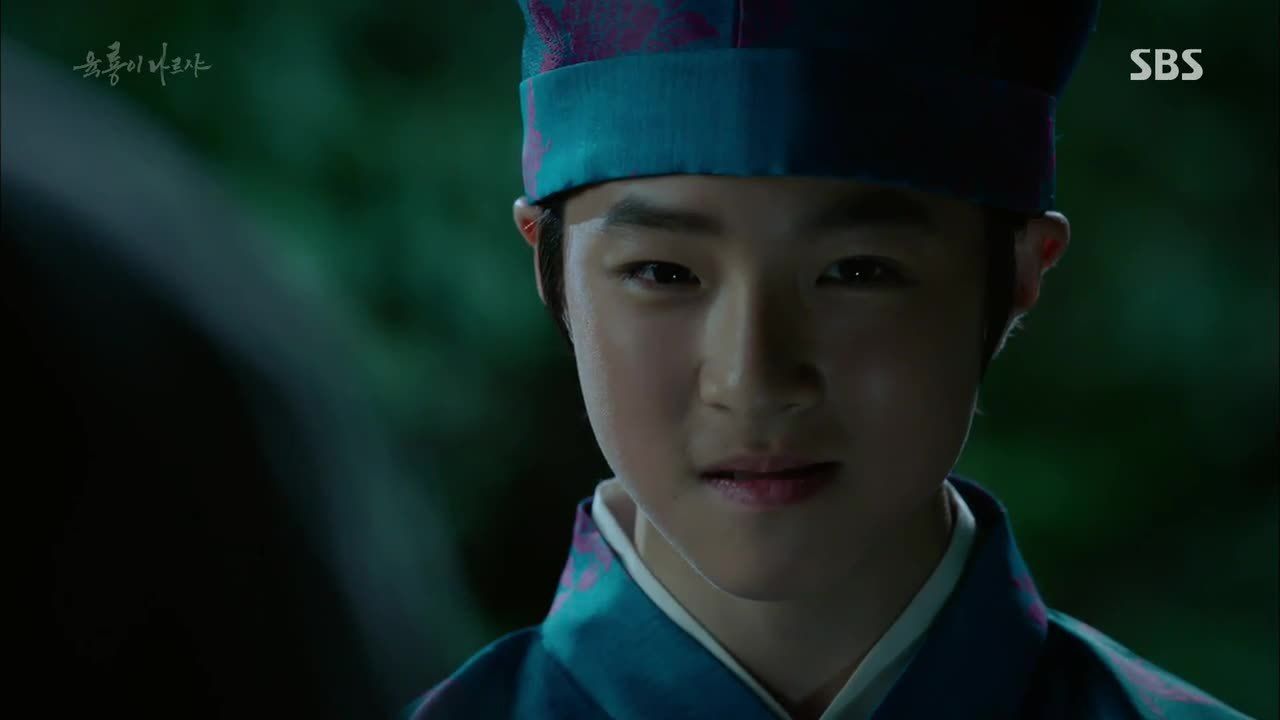
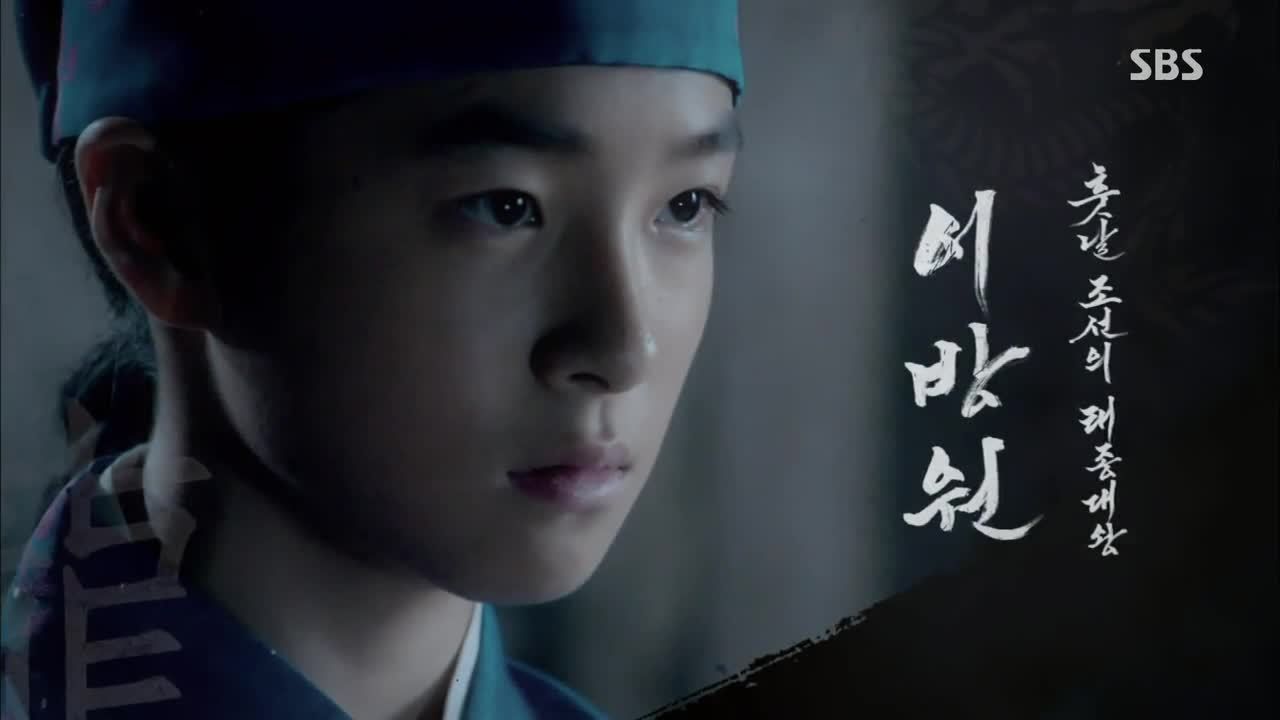
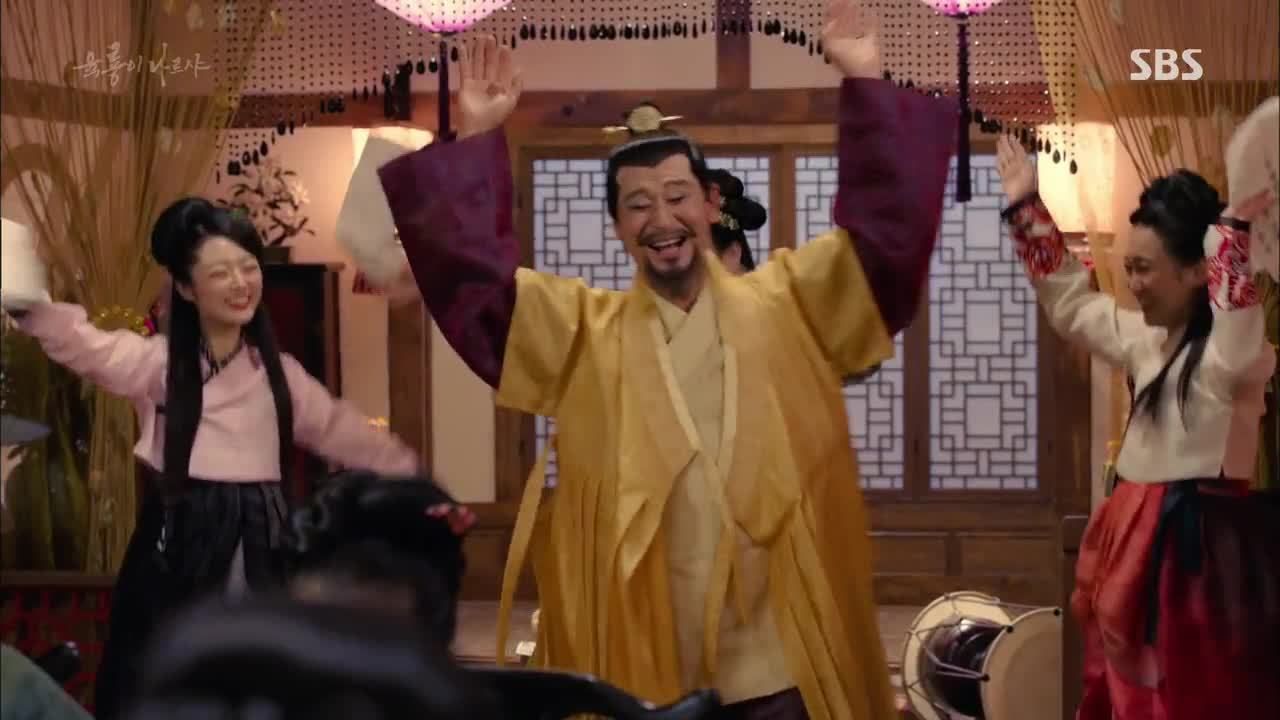
 Interview with Kim Yoo-jung
Interview with Kim Yoo-jung Hello Dramabeans series
Hello Dramabeans series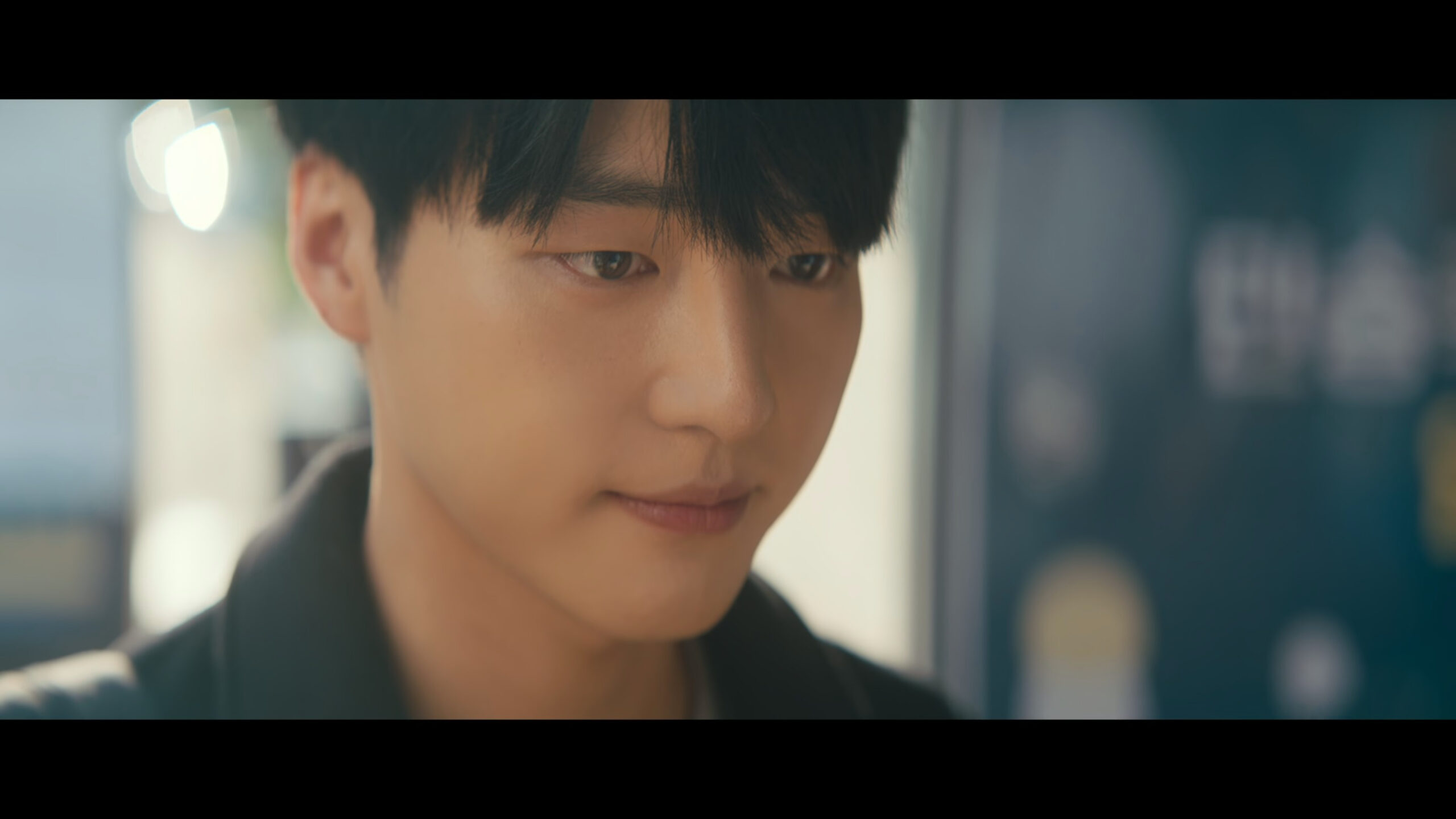
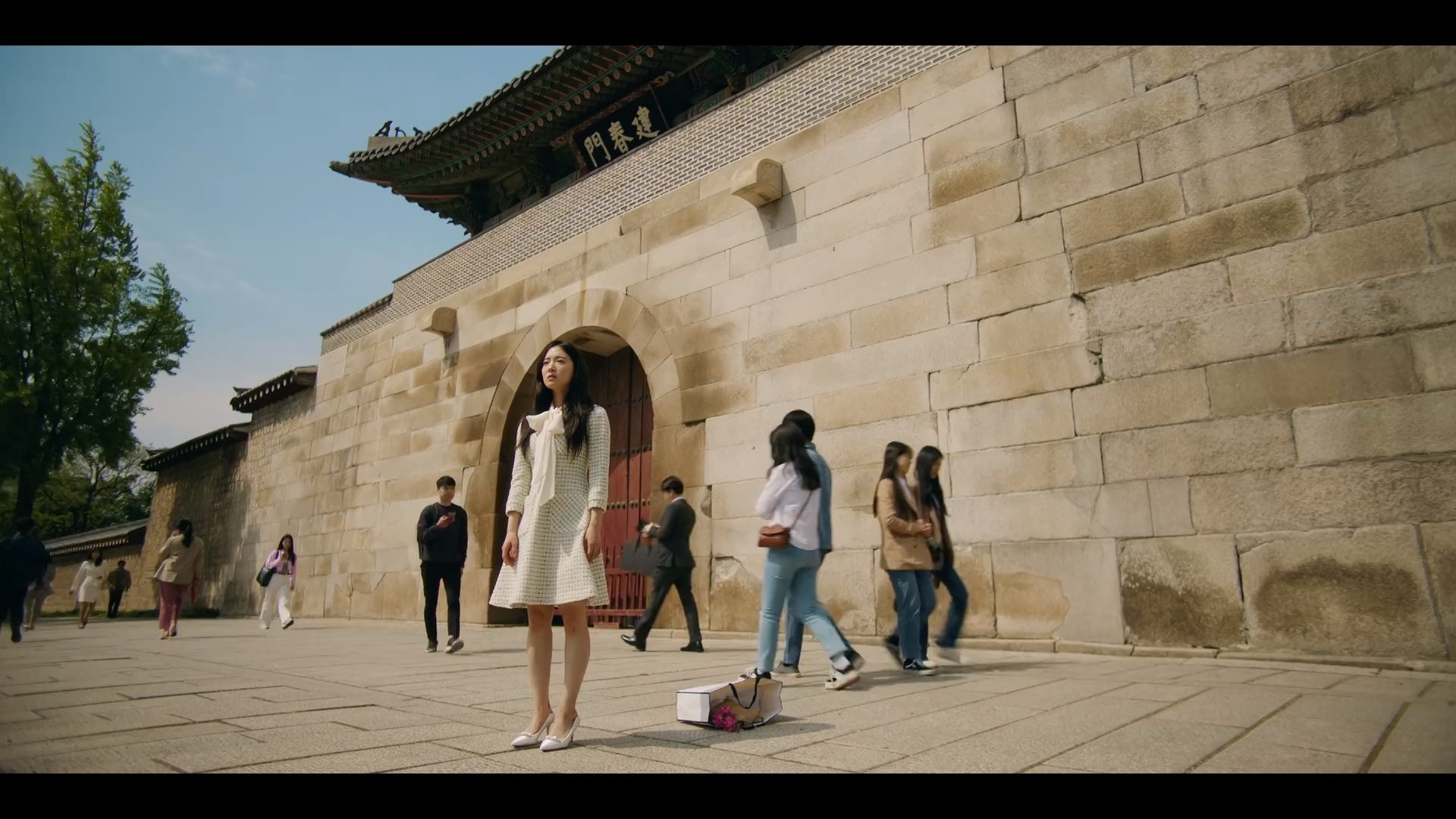


![[2022 Year in Review] The Bean Count](https://www.dramabeans.com/wp-content/uploads/2022/11/beancount_2022.png)

Required fields are marked *
Your email address will not be published. Required fields are marked *
1 JKarp
October 13, 2015 at 9:18 PM
Just want to comment that Chan-Sung is not Seo Kang-Joon but Suh Joon-Young, I remember him from The Dirge Singer.
Required fields are marked *
HeadsNo2
October 13, 2015 at 9:22 PM
Derp. Don't know what I was thinking. Fixed.
Required fields are marked *
2 Adal
October 13, 2015 at 9:18 PM
Just out of curiosity I want to ask, the star ratings that are placed beside the number of comments - what on earth are they for? Who gets to vote? And how is the voting done??
I am still waiting for either Dramafever or Viki to finish subbing so I can watch this. Thanks for the recap, Heads!
Required fields are marked *
3 nomad
October 13, 2015 at 9:24 PM
I'm so impressed at the way this drama has been going so far...well, having seen TWDR I guess it can be expected. Bang Won is scary for such a young child, isn't he? I mean...how did he manage to kill all three adults? I like your thoughts on how Bang Won ticks, Heads!
Required fields are marked *
4 mykonos
October 13, 2015 at 9:47 PM
this show has got me rly excited it is sooooo pretty to look at. it's not as smooth as TWDR in terms of scene cuts and several things things that happen are not as natural as it could be (like the whole contrived fake ambassador Yuan set up which allowed KMM to deliver an awesome speech, the planting of the trees thing as Heads said just to show that Bang Won killed the scholars later; the whole Gil Tae Mi real-frivolous-but-actual-ninja-assasin thing). But the twisted logic of the main character feel very organic to me and I'm looking forward to his development in the future- loads of potentially interesting character relationship dynamics. thanks for recapping this Heads :)
Required fields are marked *
earthna
October 14, 2015 at 12:28 AM
Wouldn't this drama be so much better with Jang Tae Yoo as director? lol. I'm still bitter about it.
Required fields are marked *
5 Lincoln Gu
October 13, 2015 at 10:02 PM
So is the song they were singing at the end of episode 2 a historical song or?
I actually liked it, but don't think we can ever get that as a OST anywhere.
Maybe it is not so much the show, but the idea of the best actor in Korea singing a song (Kim Myung-min singing, omg)
Required fields are marked *
Kiara
October 13, 2015 at 10:20 PM
The song was written for the drama. King Gongmin didn't write the song like it says in the drama lol.
The song connects the missing mother of two dragons (Ddang-sae and his sister Boon-Yi ) to the late King Gongmin and Queen Noguk. She might have been the queen's maid who was supposed to be dead for 18yrs.
Required fields are marked *
juniper
October 14, 2015 at 9:01 AM
I totally broke out my Shin Don soundtrack and listened to Gongmin's theme after that episode, not gonna lie. I'm such a dork. It seems strange that they have him writing songs, though, when he was renowned for his paintings.
Required fields are marked *
Kiara
October 14, 2015 at 10:44 AM
Lol Gongmin fan-girl, I don't blame you. I don't get why they went with the song instead of his paintings either. It doesn't sound like something he would write or maybe I don't get the real meaning of the lyrics.
I missed Shin Don so I started from eps 20-ish last night.
I have to say that X's translation had me laughing a few times. "Shut your vile gob you Scalawag" is stuck in my head lol.
Required fields are marked *
juniper
October 14, 2015 at 11:02 AM
lol love his subs so much! I always get a big kick out of the period insults he uses--scalawag, varmint, varlet, rapscallion, and my personal favorite, "heinous slattern" from Conspiracy in the Court.
Yeah, I am a huge Gongmin fangirl lol. I know some people thought he was a crybaby in that drama, but he was my favorite character. He was a very good person, he just wasn't made for the times he was living in. Between Shin Don and Giant, I'm a Jung Bo-seok fan for life.
Kiara
October 14, 2015 at 12:34 PM
Gongmin, Yisan and Sejong are my favorites.
6 earthna
October 14, 2015 at 12:26 AM
MINDBLOWN. CREEPY AT ITS BEST.
Let me just take a moment to pick up my jaw off the floor. Okay. I've been thinking how such an adorable little Bang-won would be the King he is known for to this day. Like, how would that child be killing people for opposing him, right? But this episode sealed it. Ahhhh, goosebumps all over me when I realized what was going on. Nam Dareum has grown so much, I've always liked his roles in the dramas I've seen him in but this is hands down, his best portrayal to date. There's one scene where he actually looked like Yoo Ah In, it gave me goosebumps!
That line by Minister Heo was really cool. "You don't know whether you are a chicken or a bird until you try to fly." Argh. So cool! My feeeeeeeeeeeeeeeeeeeeels!
So Gil Tae Mi is actually good with his sword. Those scenes were awesome. But why is he wearing eyeshadow and clothes that are unusual for his time? (and no one questions him for it) Is this something historical or just what the writers felt like doing? I'm really curious. Also, why is Jung Do Jeon called Sambong? Does it mean something? Like a title? There's also one guy called Po Eun but he has a different name too.
I really want to see the next episode now but subs... Maybe we're getting another dragon for it. I hope that Shin Sekyung's older Bun Yi would have the same sass as Lee Re's Bun Yi. So excited!!
Thanks for the awesome recaps, Heads!
Required fields are marked *
kooriyuki
October 14, 2015 at 2:24 AM
Sambong and Po Eun are pen names. East Asian scholars in those days like to have at least one pen name, other than their given names.
Required fields are marked *
earthna
October 14, 2015 at 10:26 AM
Oh, makes sense. Thanks for replying!
Required fields are marked *
7 Lizzie
October 14, 2015 at 1:32 AM
have recaps always had yellow stars or is this a new thing?? I seriously can't remember...and how do they work?
Required fields are marked *
growingbeautifully
October 14, 2015 at 4:33 AM
@ Lizze
I'm guessing that the ratings pop-up comes ad hoc when people comment. If you happen to comment at the right time (whatever the 'right' time is), you get the pop-up.
The 5 stars are:
-being ‘Badass’ great (5 stars),
-having plotholes which look smaller if we squinted really hard (4 stars),
-A for effort, C for execution (3 stars),
-“Is it too late to hire a script doctor? I volunteer as tribute” (2 stars)
-and “I want my hour back” (1 star).
:)
Required fields are marked *
Adal
October 14, 2015 at 6:35 AM
Thanks Growingbeautifully, I wondered what that was all about.
Required fields are marked *
Lizzie
October 14, 2015 at 11:36 AM
thanks! :))
Required fields are marked *
8 I don't give Six Flying Dragons
October 14, 2015 at 2:54 AM
They "went full psycho, man. Never go full psycho".
Jut kidding, I loved it!.
I mean, In the first episode the kid watches his father behead a man of his own ranks, and doesn't flinch. Violent times.
And the three "scholars" stright out assaulted him.
He doesn't want to spend his life bowing like his father in shame for the beating or, more likely, for burning the book.
I have a theory on the trees, they are like Game of thrones Aria's nightly list of the enemies she is going to kill when she is all grown up.
That an the beheading nobe father, I think they are going full Aria, with a dusting of Jeoffrey.
Can't hardly wait.
Required fields are marked *
Shaista
October 14, 2015 at 7:38 AM
Well, Yoo Ah In mentioned at the press conference that SFD reminded him of Game of Thrones.
Required fields are marked *
9 Kiara
October 14, 2015 at 6:20 AM
They weren't kidding when they said that this is going to be a pre-sequel to TWDR. Historically the story does not make any sense. This is manipulating history to fit the present day’s ideal. Lee Bang-won is not your typical Goryeo teen.
This is going to be a very long fictional sageuk with some historical figures. I won’t be surprise if they end up selling a novel called "Six Flying Dragons" based on the whole drama.
They did a good job picking an actor that's closer to Choi Young's age. The previous prime ministers hold more power in the court than a military commander but in this case King U is only in his teen and Choi Young who put him on the throne is running the country as the Commander in chief.
I'm curious about the missing mom's backstory. What’s with the fake death? What did she know? Did she have anything to do with the queen’s death or Gongmin’s assassination? How did a scholar official like Jung Do-jeon know about Gongmin’s song and palace secrets?
Required fields are marked *
juniper
October 14, 2015 at 9:08 AM
Based on Hong Ryun's death scene last episode, I'm thinking that Gongmin was somehow aligned with the Ming, or was sympathetic to Jung Do-jeon's cause. I won't even talk about the history at this point lol. Let's just give up and enjoy the pretty :)
Required fields are marked *
juniper
October 14, 2015 at 9:10 AM
Sorry, thought I should clarify since that was last week already--remember how Hong Ryun accused Gongmin of treason before he got killled? I'm thinking that the drama is going to act like Gongmin was a secret Confucianist or wanted to ally with the Ming or something.
Required fields are marked *
Kiara
October 14, 2015 at 11:09 AM
Yes, that makes sense.I want to know who was behind it. Maybe Yeon Hyang knows something about it and that's why she disappeared.
Required fields are marked *
Kiara
October 14, 2015 at 10:06 AM
But we don't have a lot of pretty beside YAI and I only have one ahjussi crush so far (Kim Myung-Min). I need multiple distraction here or I'm going to start whining about history lol.
I guess I could fan-girl over Byun Yo-Han since he is the future best swordsman in Joseon but that usually means that he will die in the end like Moo-Hyul did in TWDR and I'll cry like a little baby again.*sigh*
Required fields are marked *
earthna
October 14, 2015 at 10:29 AM
Yo-han is actually Lee Bang Ji (Chae Yoon's master in TWDR) but I guess if you go that route, he dies too. LOL
Required fields are marked *
Kiara
October 14, 2015 at 12:11 PM
That old guy? He is prettier here lol. Thanks for making the connection :). At least he'll survive this drama.
I'm surprised to see Seo Joon-young playing someone else in this drama instead of his old character from Tree.
juniper
October 14, 2015 at 11:08 AM
We'll just have to make due with Kim Myung-min until we've gotten the childhood section over with. I just wish the drama would look at the big picture every once in a while, instead of getting lost in the weeds all the time. If you're just casually watching it, it can be hard to follow the constant back-and-forth, double and tripe-crossing, and one-upmanship. After a couple of episodes, I'm starting to get the sense that it's trying really hard, but isn't really about anything or going anywhere. And there's no historical accuracy or even historical perspective to help us draw our own conclusions.
Required fields are marked *
Kiara
October 14, 2015 at 10:36 PM
I think it's trying really hard to be TWDR. The setup of the opening episode is kind of similar but the adult part wasn't thrilling and gripping as the opening on Tree. Maybe they should have done a little more than this "who are you?", "I know you" intro?
Tree was very fortunate to leave the child portion in Song Joong Ki's capable hands and the show never lose it's intensity with him. Man, he was so good so incredibly good! Then after 4 eps he handed it back to the amazing Han Seok-kyu and the rest is history.
I hate saying this but I can't wait for the kids part to be over. I think this Lee Bang-won is very young to get involved in murders and conspiracies. He looks like he is around 12. It's hard to imagine a country pumkin his age running around alone in the middle of the night in unfamiliar territories and possibly killing 3 adults in the name of justice.
These first 3 eps is making me grumpy. I want more KMM please.
juniper
October 15, 2015 at 12:32 AM
Yeah, I'm not sure how he managed to kill them, given the size difference and the fact that they outnumbered him. I guess he used his wits--they didn't seem very smart.
I feel like the show has improved a little this week, but you're right, it's a long way away from TWDR. Song Joong-ki was so good in that drama that I actually missed him when Han Seok-kyu first took over (that's really saying something lol). And I think you've hit on my problem--it does feel like it's trying to be TWDR. The problem for me (besides the fact that TWDR's PD and cast were better) is that this show doesn't have the thematic consciousness TWDR had. Like, from the very beginning of TWDR, we knew what the show was about (Hangul as a political revolution), and it spent the next 24 episodes expanding on that. With this, I don't feel like it's about anything. It's definitely not about the history lol, and it doesn't seem to have an overarching theme tying everything together. I'll give it some time, I guess.
laraffinee
February 12, 2016 at 10:09 PM
Although I appreciate the writers trying to develop the character of Lee Bang Won and his transition from idealism to pragmatic merciless efficiency and his definition of Justice, I too find it absolutely unreal and absurd that he was able to kill 3 young men who are way larger and stronger than him.
The director really should have given us a hint of its plausibility - such as finding them tied up in the shed already and such a glimpse. As it is, it was a BIG
"Whaaaaaat???"
- not because he would want to do it, but in being able to pull it off.
10 Shaista
October 14, 2015 at 7:35 AM
The child actor who plays young Lee Bang Won is really good. He shows the transformation from an innocent cheerful boy to a steely black heart teen
Required fields are marked *
11 June
October 14, 2015 at 8:56 AM
I wasn't sold on the first 2 episodes but this episode sealed the deal. The child actor for Yi Bang Won seriously won me over with his initial naivety and idealism, then creeped me out towards the end of this episode. And he was such a handsome endearing child in Pinnochio. This young star is a formidable one to lookout for after Yoo Seung Ho and Yeo Jin Gu.
Required fields are marked *
12 juniper
October 14, 2015 at 9:05 AM
idk about this turn Lee Bang-won is taking. He murdered a lot of people, true, but that was political violence, not vengeance killing. He was not a sociopath, he was a product of his time, and it would be ideal for a sageuk to acknowledge that. But this isn't a Jung Ha-yeon drama, so I'll take what I can get. I'd rather have crazy murdering sociopath Lee Bang-won than innocent, brave, misunderstood Lee Bang-won, so game on. Now if only he'd grow up already :)
Wish there had been more Kim Myung-min this episode.
Required fields are marked *
Kiara
October 14, 2015 at 12:27 PM
Wait until the romance kicks in and we will probably see the other side of him.
Required fields are marked *
juniper
October 14, 2015 at 1:12 PM
lol true, true. Just look at Bidam. One minute he's a psycho killer, the next he's Deokman's boyfriend.
Required fields are marked *
13 owl
October 14, 2015 at 9:06 AM
"Never in my life would I have thought I’d be so excited at the thought of a main character committing three heinous murders, and to have him do so as a child is a bold move that’s honestly pretty impressive in its darkness."
HeadsNo2, that goes to the heart of what makes the kdrama so exciting early on. Lee Gang Won has had so many disappointments already from the adults he idolizes in his life, including his father. Even as a boy he is smart enough to grasp the principles that govern those he idolizes, but the flip side of the coin is revealed, and to his dismay and disgust, he observes that those principles can be broken under certain advantageous circumstances. However, upon his own test at the threat of being maimed or even death, he makes his choice with the resolve that the evil roots shall be destroyed instead. Kinda makes one hard to the harsh realities of life. And death. It makes me root for Bang Won.
One had to grow up so fast in the Goryeo era!
Required fields are marked *
14 madi
October 14, 2015 at 4:33 PM
Finish episode 4. i love the storlyline.
Required fields are marked *
15 ramenqueen
October 14, 2015 at 5:43 PM
What's with the weird editing that show five angles of the same person while he is talking?
Also does anyone know if it's normal for people to hold hands so much when they talk? I just thought that guesture seems too western for a Korean show. Especially a saguek
Required fields are marked *
16 Random
October 14, 2015 at 6:44 PM
That broken Chinese-speaking old man who fought Gil Tae Mi reminds me of some sage kung fu master (eg Bak Mei) in a Shaw brothers flick from the 60s.
I find that slow reveal of who actually killed the 3 guys was totally unnecessary. What I would have preferred was if they showed Bang Won descending into despair and then giving way to hatred and vengeance. Show him gloating over the bodies with that smirk, blood splattered all over his face, cold triumphant eyes. Transformation complete.
That would be a more shocking image for the drama than that creepy smirk while doing his gardening. It seemed like the producers chose to replace the opportunity for really good acting with editing.
Required fields are marked *
earthna
October 14, 2015 at 11:12 PM
HAHAHHAHA. I would've loved that! If this was in cable, it would be more probable. Ahhh, I just can't shake this thought off my head. What if Jang PD did this? If only...
Required fields are marked *
Random
October 15, 2015 at 12:52 AM
Ah yes, I totally forgot about the non-cable restrictions. Oh well..
Required fields are marked *
17 I Will Goryeo You
October 14, 2015 at 9:58 PM
Gil Tae Mi is really something! Anyone else obsessed with his makeup?
Required fields are marked *
18 Bravelight
October 14, 2015 at 11:03 PM
I am so relieved that there is a drama which I would love to chase every episode! Bring it on! 50 episodes? 60 episodes? NO SWEAT !
This drama is FREAKIN' great!!!!! Thanks Heads for recap! Muahhh
Hugs, kiongna
Required fields are marked *
19 fleurvoyeur
October 15, 2015 at 3:51 AM
Best sageuk I am hook! Thanks for the recaps!
Required fields are marked *
20 Marshmallow
October 15, 2015 at 9:11 AM
I'd like to show the end of this episode to everyone who complained that the writers were idealizing and romanticizing Lee Bangwon. Far from it. Wish people would stop judging this show right from the onset. It's 50 episodes long. Development for the storyline and characters needs to take this long if they don't want to lose direction when hitting the halfway mark.
Required fields are marked *
Kiara
October 15, 2015 at 11:42 AM
We are at eps 4. How do you know they are not going to romanticize him? They have done it before with historical figures like Bidam. He started off as heartless killer but turned loverboy when he met the queen.
I hope they have the guts to stick with it but this romance might change him.
Required fields are marked *
21 Shibachibi
October 27, 2015 at 6:45 AM
Just out of curiosity, guys... Is the General Choi Young in this supposed to be based on the same historical figure as Lee Min Ho's General Choi Young in Faith?
Required fields are marked *
Kiara
October 29, 2015 at 9:19 PM
Yes ma'am.
Required fields are marked *
22 Daniel
November 5, 2015 at 2:04 PM
I was shocked of the reveal, but it was a shock mixed with admiration. Sounds bad I know but ... WOW...
Required fields are marked *
23 Sofiannedeer
December 12, 2015 at 1:12 PM
How can i download Ddang sae and bong yi mother's song
Required fields are marked *
24 Kayla
January 1, 2016 at 10:48 PM
I am so confused... I may be overthinking this. But who did Lee Bang Won kill? Just the 3 scholars including Gil Tae Mi's son? Didn't Bang Won murder the scholar's family also? Wasn't Gil Tae Mi the one who initiated the plan to assassinate the scholars (including his son)? Or was it Scholar Hong's idea? Someone please explain, I am in utter confusion.
Required fields are marked *
25 Muse
January 4, 2016 at 8:48 PM
I don't get it. If Bang Won killed those 3 scholars who tortured him then that means Gil Tae Mi's son was among them, right? He was the leader of the gang after all, and there were 3 bodies. So if he's dead, why is his father happily flapping away with the giseangs in the pleasure house? Especially when he was so mad before when he thought his son would be interrogated. And he's gleefully discussing the assassination with Minister Hong. Huh? o_O
Required fields are marked *
26 Pickwick12
June 25, 2017 at 6:33 PM
I just watched this episode for the first time, and I was so completely shocked by Bang-won's tiny murdering ways that I almost shrieked out loud. Compliments to this drama for giving me one of the best surprise twists I've ever seen.
Required fields are marked *